33 best science books for kids and young adults (original) (raw)
Whether they are a young Marie Curie or Albert Einstein, a budding botanist, cuckoo for chemistry or simply looking for something new and exciting to read over the summer vacation, if there is one thing we know about our young Live Science readers, it's that they love a good science book.
With the help of our sister magazine "How It Works," we've pulled together some of the best science books for kids of all ages, which should keep their young minds fizzing with ideas long into the future.
To make things easier, we've grouped them into two sections: one featuring books for children under 10 years old, and the other books for older children and young adults. They are all books that have been released recently, but if there are any that you think we have missed then please let us know on social media (here's where you can find us), or ping us an email at community@livescience.com.
Best science books for kids under 10 years old
Beat This Book
Why you can trust Live Science Our expert reviewers spend hours testing and comparing products and services so you can choose the best ones for you. Find out more about how we test.
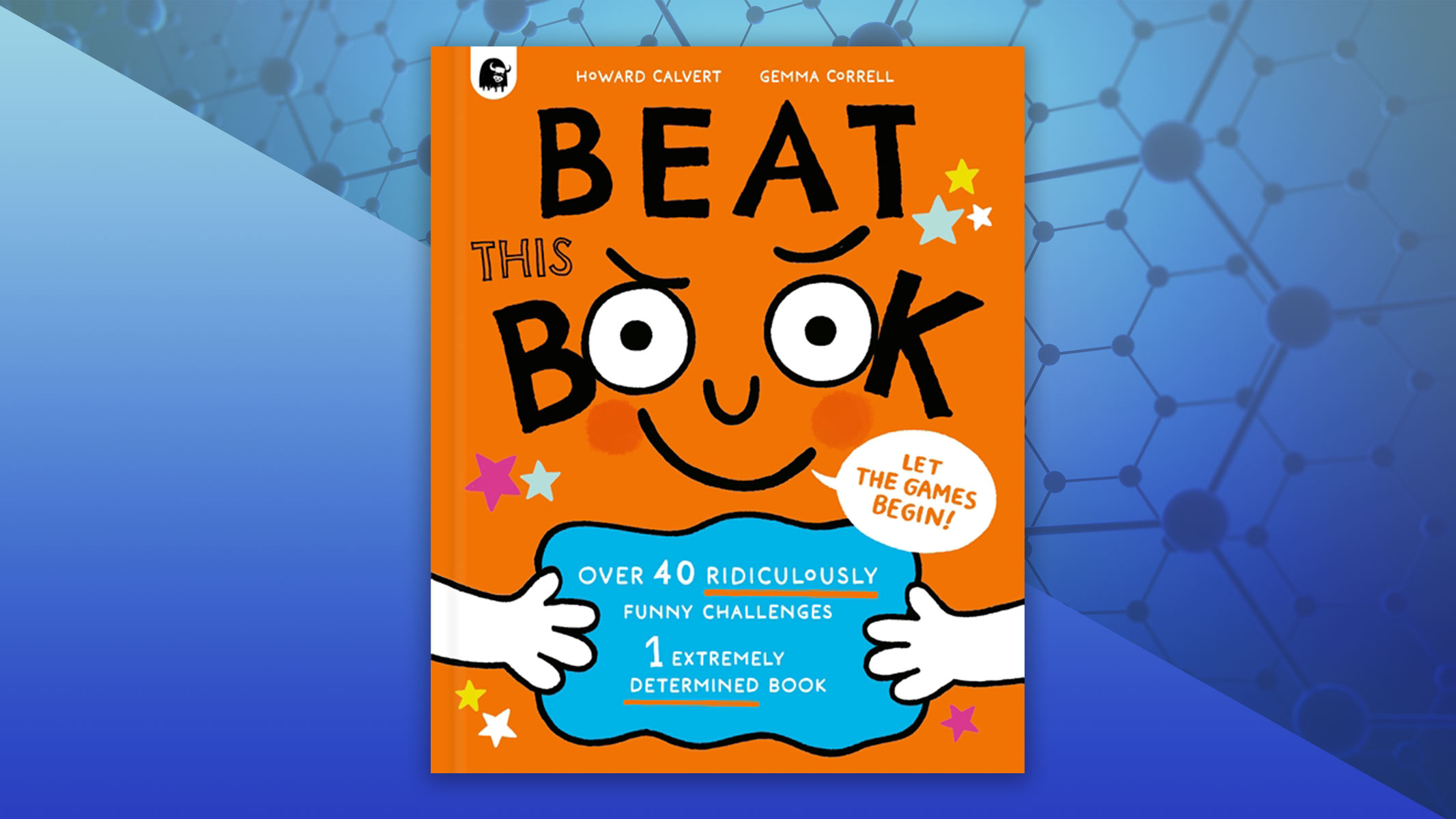 Let the games begin! (Image credit: Quarto)
Let the games begin! (Image credit: Quarto)
The challenge begins right out of the gate: the eponymous "Book" speaks to the reader in a tone that approaches that of the comic book supervillain, telling them that they cannot possibly beat the challenges it sets — though that shouldn’t put them off and they will certainly have fun trying.
Book’s super-confident demeanor lasts all of three pages, after which it gives the reader a slow-clap for spotting the smallest dog among a tightly packed spread of cartoon pooches. It’s downhill for Book from here, as it lines up one game after another only for its self-belief to waver as it assumes the reader beats every challenge. Challenges like, which is the longest of five slippery creatures that include a worm, a boa constrictor and a deep sea siphonophore. And, find the hole among all the spots on several different creatures — it’s an actual hole in the page of the book, as if someone had used a hole-punch on it.
Other types of challenge include those of the physical variety, like the one where the reader has to bend their body into certain shapes, lateral thinking puzzles and really silly stuff, like when Book challenges the reader to make a noise like an otter.
There’s a loose educational aspect to it, of course. Book throws the reader a curious animal fact here and there, but "Beat This Book" is largely about encouraging younger children to think outside the box — outside the book, even. It’s silly, it’s fun, it’s original, and it’s a great way for young readers and their parents to read and play together at the same time.
How to Explain Climate Science to a Grown-Up
Details
Author: Ruth Spiro
Illustrator: Teresa Martínez
Publisher: Charlesbridge Publishing
Price: Available on Amazon for $17.99
Release date: March 4, 2025
In the latest installment in the "How to Explain" book series, children tackle the topic of our climate, and more importantly how humans affect it. In its typically charming way of turning the tables on who's teaching who,the book gives children all the information they need to explain climate science to adults. It includes how to explain the differences between weather and climate, why our climate is changing and what we can do to help stop things from getting worse.
Its humor and handy 'pro tips' on how to keep adults engaged while they learn are a brilliant way to teach young readers how to articulate what's going on in the world. It’s yet another great edition in this series that's helping children learn through teaching adults. "How to Explain Climate Science to a Grown-up" is a must-read for inquisitive children who love to tell you what they have learned in school.
Related: 3 bold ways cities are already adapting to climate change
Immune heroes: protectors of the wound
After a young boy named Mayu tumbles from a bicycle and scrapes his knee, an army of immune cells, led by Captain T, leaps into action to tackle the infection and heal the wound. In a brilliant blend of storytelling and science, this playful kids' book showcases how the immune system works to heal a wound.
The battle-plan narrative of the story sees a variety of real-life immune cells playfully transformed into cartoon heroes, each with their part to play. From the neutrophil first responders that reduce swelling to the glutinous macrophage cells that devour bacteria invaders, there's a whole host of immune cells to discover and watch as they fight off intruders that seek to wreak havoc.
By the end of this charming story, children will not only be entertained but will walk away with a better understanding of how the body heals.
Related: Why are scabs so itchy?
They Work: Honey bees, nature’s pollinators
The busy lives of honeybees are usually concealed inside their complex hives. But in "They Work" you can uncover the goings-on in and around their honeycombed homes. Through detailed and varied illustrations, this book clearly shows how bees work together to store food, serve their queen, reproduce and clean the rooms of their homes. There may be more roles than you realized, from nannies that care for young larvae to construction workers, engineers and the queen’s ladies in waiting.
This colorful book covers complex instinctual behaviors and mesmerizing map-making skills that bees have learned in the form of a sophisticated dance. In addition, biological cutaways show the honey stomachs of honeybees, which they fill with nectar and water from flowers around the hive. This separate stomach enables them to carry their gathered supplies back to their bases.
These animals are unique communicators who have developed an elaborate workforce and family that you will meet throughout "They Work".
Related: Do bees have knees?
Body Detective!
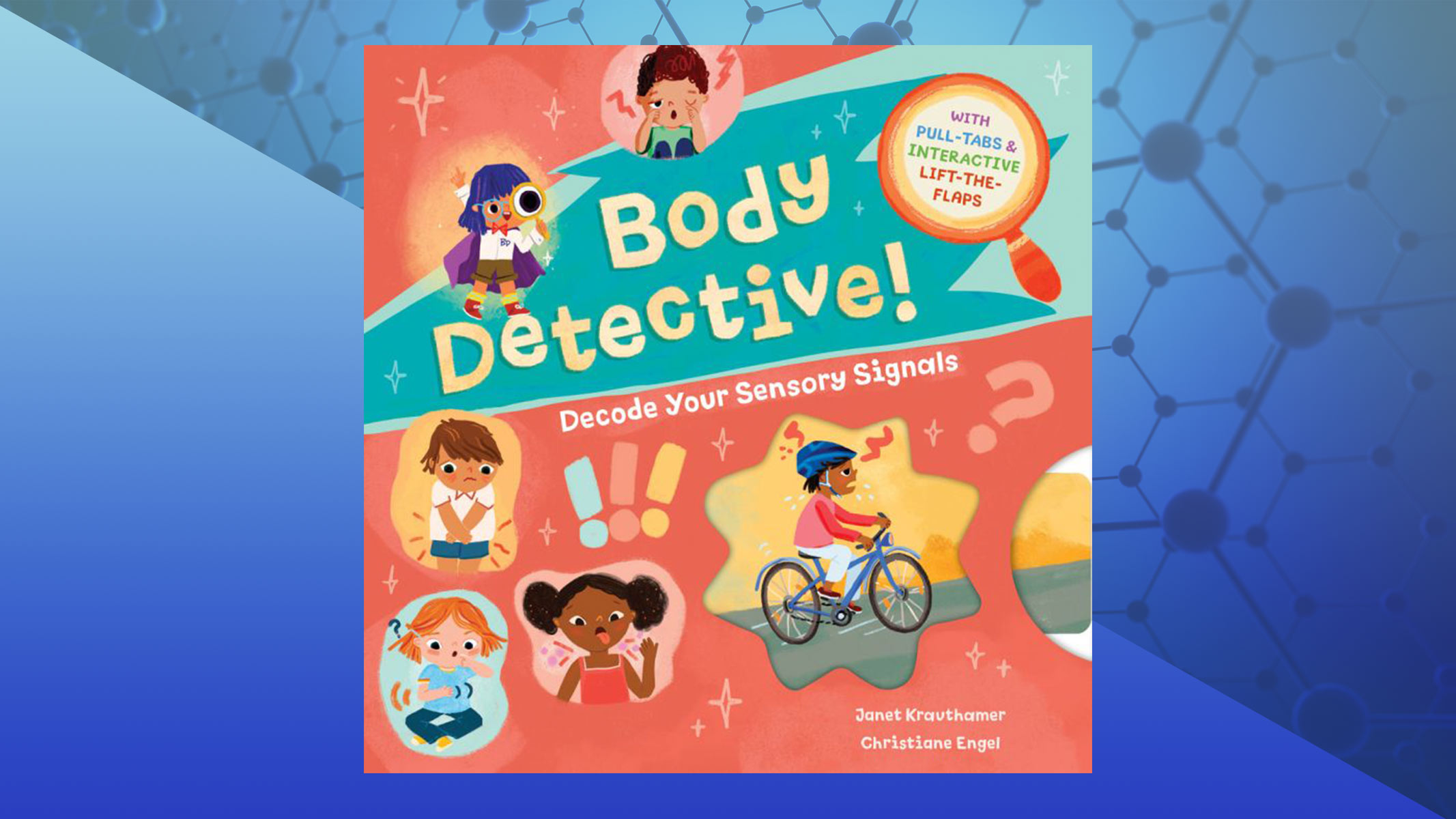 Mindfulness: not just for the next generation (Image credit: Barefoot Books)
Mindfulness: not just for the next generation (Image credit: Barefoot Books)
"Body Detective!" walks the reader through some of the basic functions of the human body and how our bodies communicate its needs to us. To use a simple example from the opening pages: "My tummy is making funny noises… my body signals tell me that I am feeling HUNGRY!"
The rest of the book continues in this vein, describing a spectrum of biological and emotional signals that include anxiety, tiredness, pain, the need to urinate and others. It’s appended by a detailed description of what "interoception" is — the sense or "feeling" of what's happening in your body — before asking the reader to focus on various parts of their body to gauge any sensation coming from it, however big or small that feeling may be.
Author Janet Krauthamer’s words are complemented by Christiane Engel’s appropriately fun, childlike illustrations, with paper flaps and panels that flip up or slide across to reveal words and pictures. The whole package is pithy, yet very effective at communicating its message on several levels.
As adults, we tend to take the signals generated by our bodily functions and primal emotions for granted, eating whenever we like or need to, putting up with persistent physical aches and pains, or pushing the stresses of life into a place where we feel we can cope with them — even if it’s not healthy for us to do so. But for young children, these signals — whether they feel positive or negative — are fresh and sometimes overwhelming. "Body Detective!" seeks to help children to understand and name what they’re feeling, and empower them.
There are lessons for any adults reading this book, as this form of mindfulness is every bit as applicable to them as it is to their children. "Body Detective!" leaves the reader with a poignant thought, that “There are no 'good' or 'bad' sensory signals" — they all serve a purpose that ultimately means we can take better care of ourselves, if only we listened to them more often.
Related: 10 body parts that are useless in humans (or maybe not)
On Track
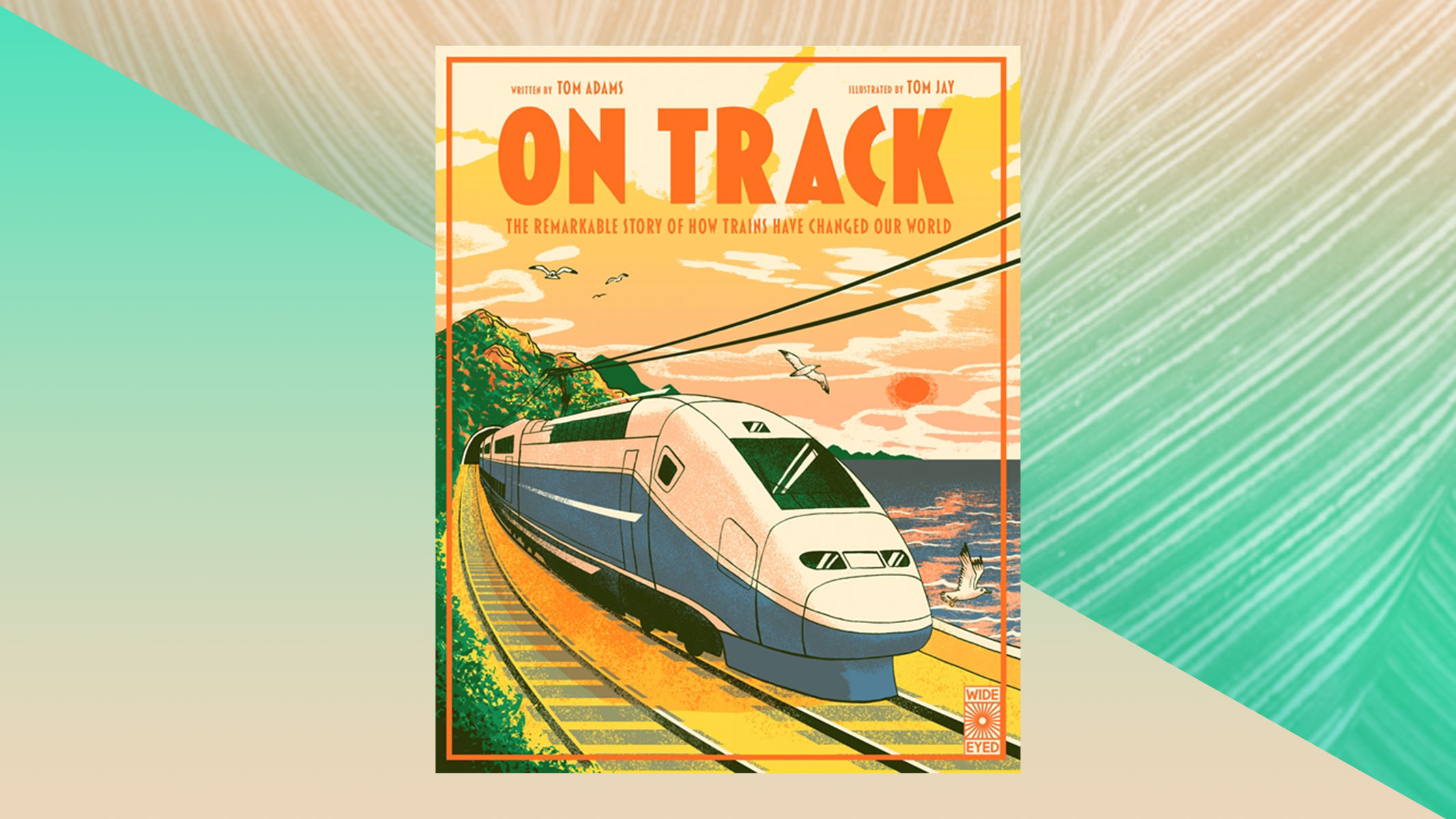 The remarkable story of how trains have changed our world (Image credit: Quarto Publishing PLC)
The remarkable story of how trains have changed our world (Image credit: Quarto Publishing PLC)
All aboard the most spectacular trains in the history of the world! In this enthralling book of locomotive discovery, readers will travel along the railways that saw the invention of steam propulsion, suspended sky trains and the driverless trains of the future. You'll discover the fastest, heaviest and longest trains on Earth, along with a few 'oddballs' along the way.
This charming book is bursting with tales of trains from around the world, brought to life with wonderfully vibrant illustrations and informative diagrams. There are also several brief biographies of important people that propelled the evolution of trains, such as George Westinghouse, inventor of the air brake and Mary Elizabeth Walton, a pioneer of the railroads. Whether you're a young train enthusiast or have an interest in historical events, “On Track” is a must-read.
Fun with Outer Space
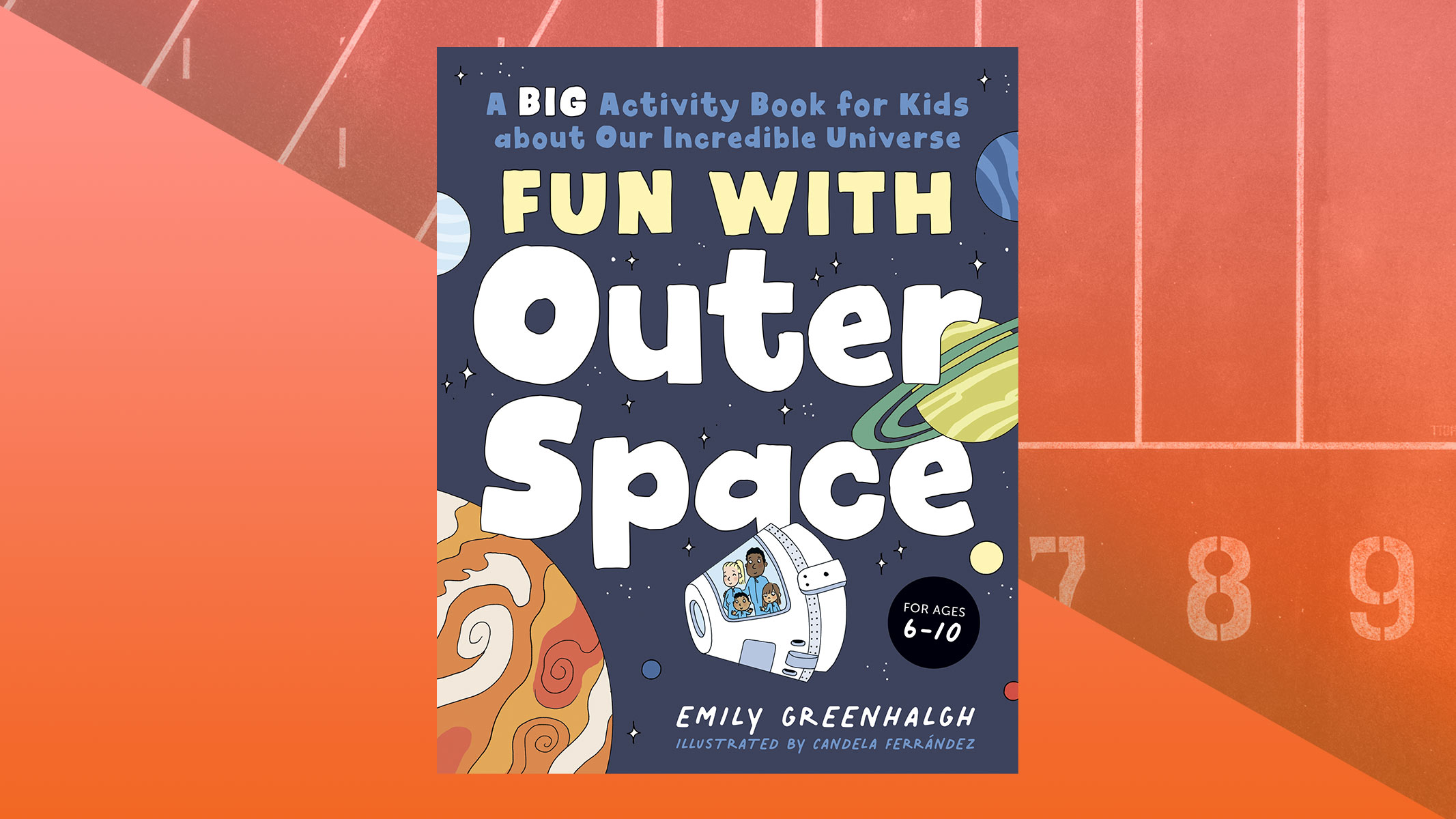 A big activity book for kids about our incredible universe (Image credit: Z Kids)
A big activity book for kids about our incredible universe (Image credit: Z Kids)
As part of the "Fun with…" series, this latest edition journeys beyond Earth to discover outer space through fun facts and activities. From cosmic crosswords to deep space dot-to-dots, there's a whole universe of different puzzles and cognitive workouts for future space scientists to enjoy.
You'll take a full tour around the cosmos and discover black holes, supernovae and nebulas, as well as the scientific instruments that study them. Each page is packed with illustrations of planets, stars and satellites, with orbital nuggets of easy-to-understand information to keep its young readers engaged and looking to learn more.
Targeted at a pre-teen audience, "Fun with Outer Space" is a great way to spend an afternoon for those with a passion for all things space. It brilliantly blends fun activities with fascinating facts that are out of this world.
Related: 25 gorgeous nebula photos that capture the beauty of the universe
Unlocking the Universe
 The cosmic discoveries of the Webb Space Telescope (Image credit: *)
The cosmic discoveries of the Webb Space Telescope (Image credit: *)
The James Webb Space Telescope (JWST) is one of the most advanced space telescopes ever created. Since 2022, it has been orbiting the sun, capturing distant celestial objects and peering deep into the darkness of space. "Unlocking the Universe" reveals some of the JWST's most awe-inspiring imagery and mesmerizing discoveries so far.
However, the road to Webb's launch was long and not without its hurdles. Within this insightful book, you'll discover the telescope's journey to space, the vast amount of technology that made its launch possible and the scientists who worked tirelessly to construct it.
The JWST is also packed with technology and scientific instruments that are revealed in the book as brilliantly annotated illustrations. No doubt, the James Webb Space Telescope will have uncovered much more about the universe by the time you've read this book, however, "Unlocking the Universe" acts as a written time capsule of its early achievements to look back on.
Related: The James Webb telescope has broken cosmology. Can it be fixed?
Volcano Atlas
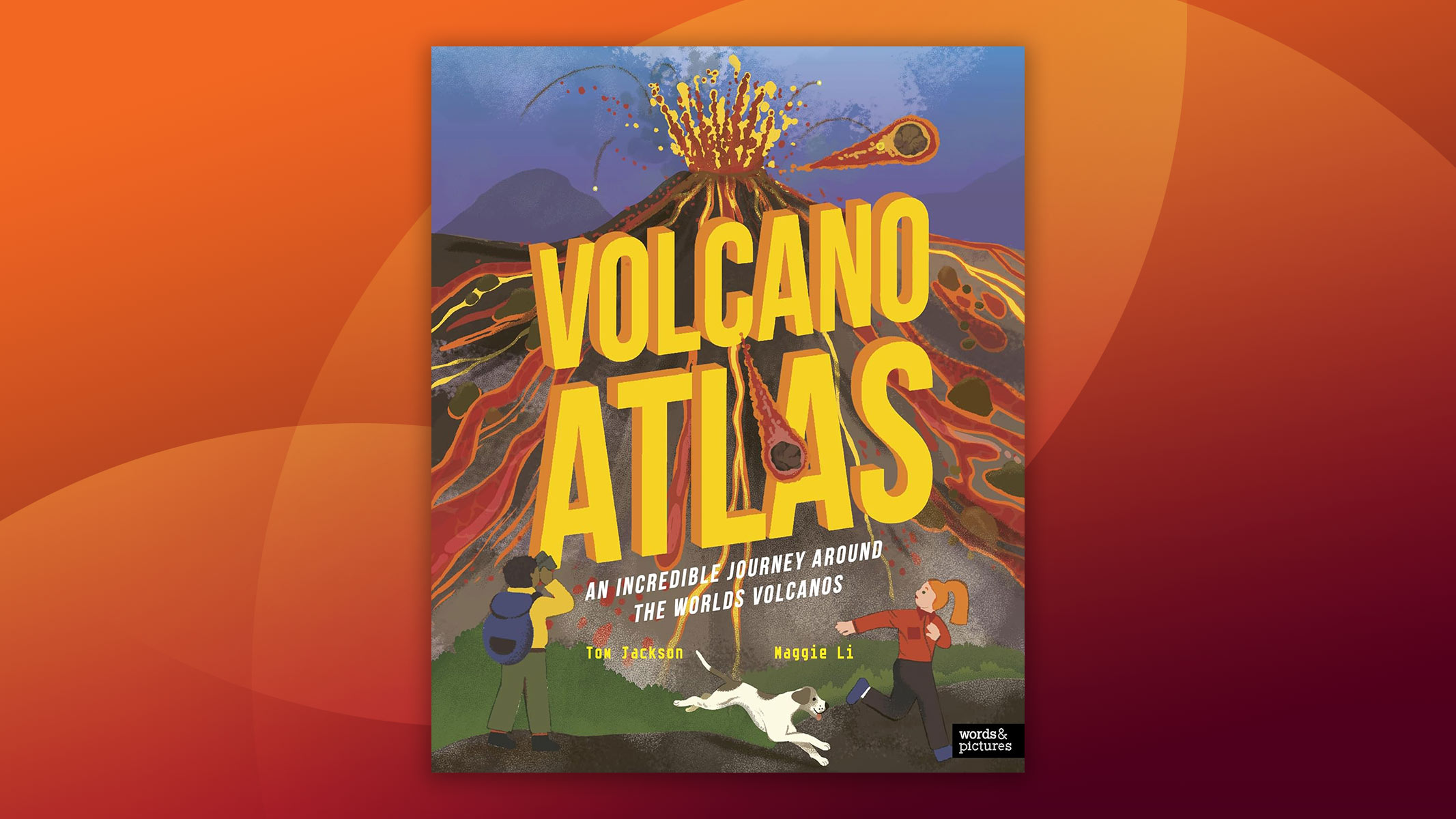 An epic journey around the world's most incredible volcanoes (Image credit: *)
An epic journey around the world's most incredible volcanoes (Image credit: *)
This engaging and varied tour of the world’s volcanoes introduces young readers to the mightiest mounds and the geological events that cause volcanic eruptions. Beginning with the basics, the clear illustrations transport you underground to observe the magma flowing beneath us and the route it takes to emerge above the ground.
Each page is bustling with enticing information, while sporting a simplistic layout that doesn’t overwhelm, exploring volcano types, unique features, record breakers, and the mesmerizing patterns of mud pots.
For each noteworthy volcano from around the world, the reader is provided with a map and fact file to compare key statistics, historic stories such as the infamous Roman-era eruption of Vesuvius, and information about surrounding sites and communities. For example, did you know the active Mount Ruapehu volcano in New Zealand hosts three ski resorts on its slopes?
From the long-dormant to the most active and feared, this book is here to show you that no two volcanoes are the same.
Related: Antarctica is covered in volcanoes, could they erupt?
Akeem Keeps Bees!
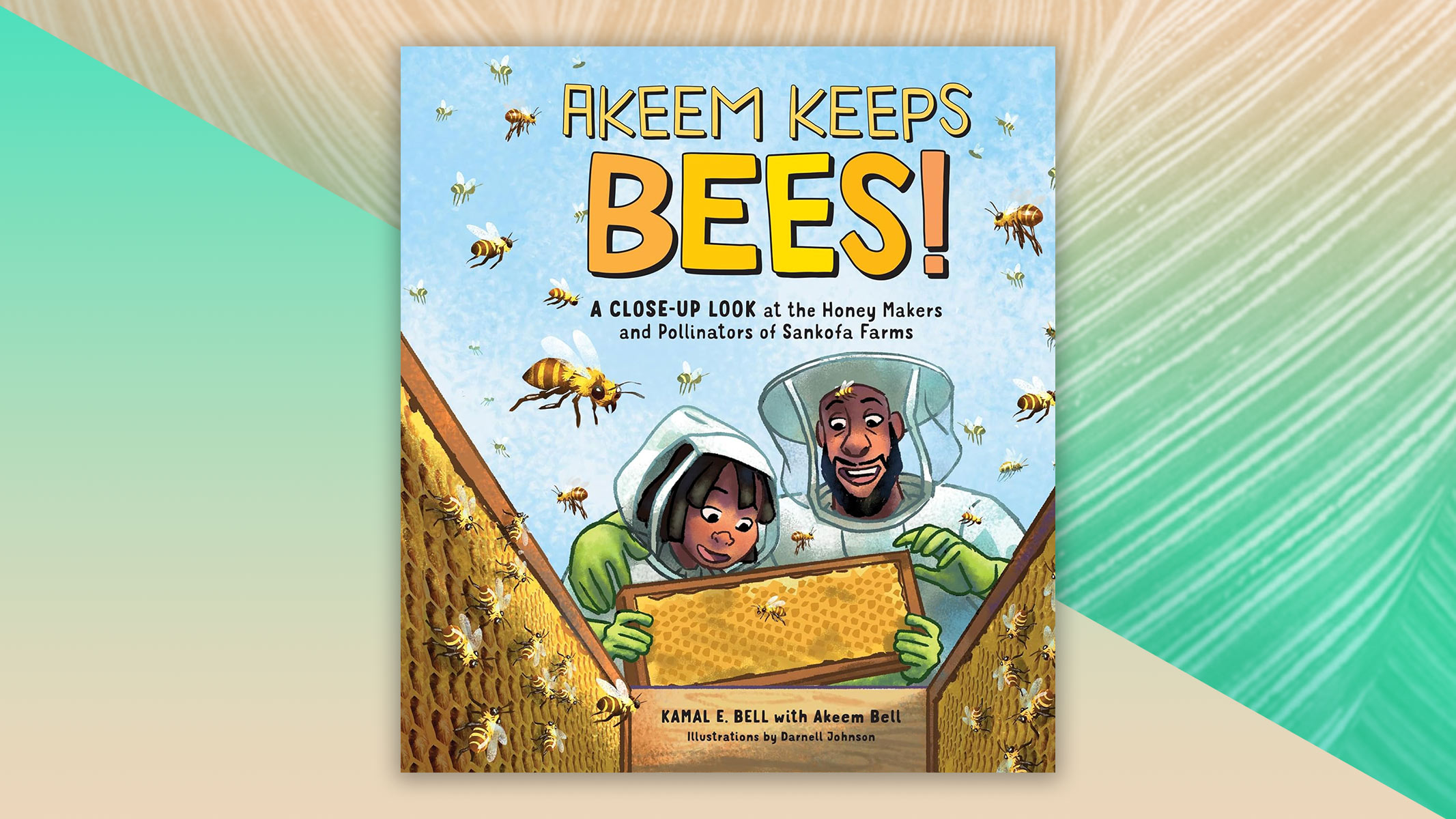 A close-up of the honey makers and pollinators of Sankofa Farms (Image credit: *)
A close-up of the honey makers and pollinators of Sankofa Farms (Image credit: *)
Details
Author: Kamal E. Bell with Akeem Bell
Illustrator: Darnell Johnson
Publisher: Storey Publishing
Price: Available on Amazon for $18.99
Release date: Feb. 4, 2025
In this book, Akeem invites you onto his family’s farm to teach you all about bees and how he looks after them. The story is written by Akeem’s father, but is presented from the boy’s point of view, helping young readers understand and relate to the content. The happy character gives you a tour of Sankofa Farms, NC, with expressive and detailed illustrations immersing the reader every step of the way. Akeem helps out with a lot of activities on the farm, but his firm favorite is raising the honeybees.
With a combination of comic-style imagery and factual diagrams, this book is an ideal blend of entertaining and informative. Akeem’s enthusiasm accompanies his father’s words of wisdom to guide the reader through the stages of the honeybees’ lifecycle, while creating a space for young readers to share in Akeem’s passion. The processes of looking after bees are presented in imaginative ways, from humorous bee dialogue to detailed diagrams of equipment.
You will discover the roles of each member of the bee colony, explore what it takes to harvest honey and learn how to care for bees all year round. At the end of the book you meet the real characters of the book in a gallery of photographs of the family and farm.
Related: Do bees really die if they sting you?
How to Explain Robotics to a Grown-up
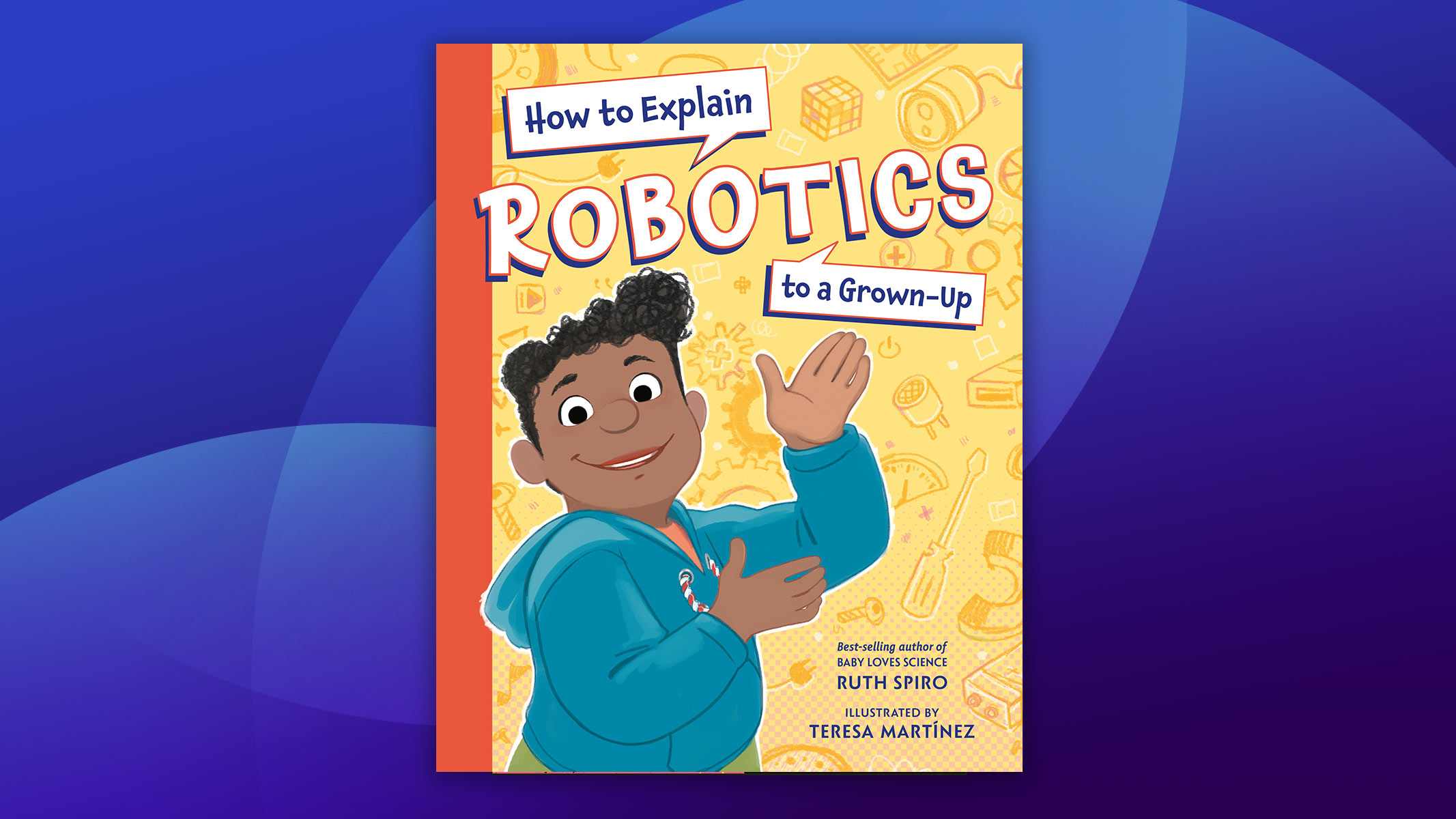 A child's guide to educating enquiring parents (Image credit: Charlesbridge Publishing)
A child's guide to educating enquiring parents (Image credit: Charlesbridge Publishing)
Part of the "How To Explain"book series, this latest installment teaches children how to explain the mechanical world of robotics to their parents. The book follows a confident young boy and his curious mother, as he explains the basic components and principles that make a robot.
The inquisitive duo go on a journey of discovery through their home to a robotic expo, to uncover the science behind different robots and understand how they use technology to complete tasks. The story outlines the three main principles of robotic coding: Sense, Compute and Act, and delves into how the three work together to create a robot.
A charming feature of this book series are the handy 'pro tips' on how to help adults understand the subject, while simultaneously imparting learning skills to the young reader. For example, "Unlike robots, humans sometimes need a break! A snack and a little humor may be just what your grown-up needs to stay focused and ready to learn."
Related: Check out the best laptops for coding and programming you can get right now
Pet selector!
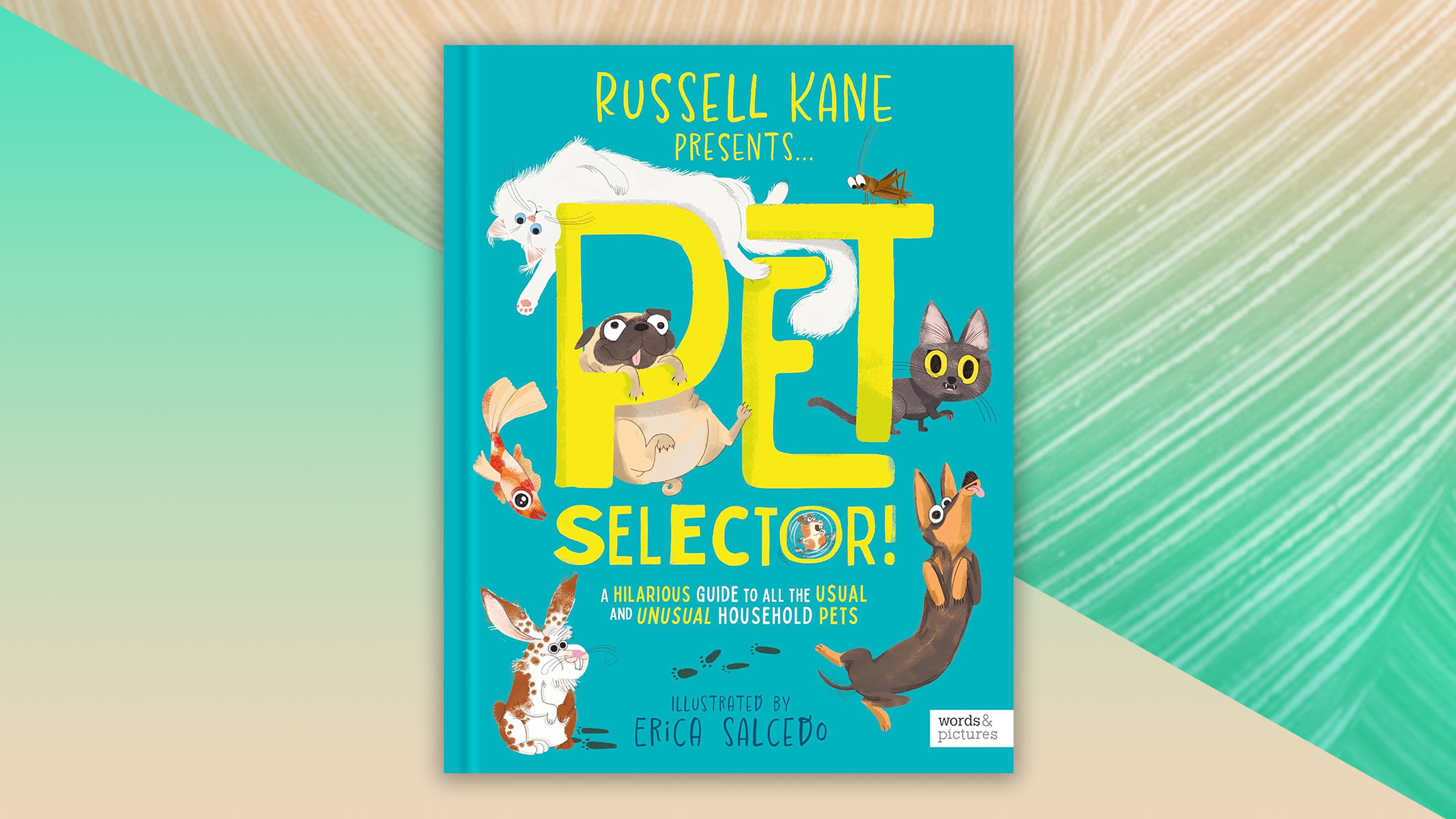 A hilarious guide to both usual and unusual household pets (Image credit: words and pictures)
A hilarious guide to both usual and unusual household pets (Image credit: words and pictures)
In this charismatic guide to pets, comedian turned pet detective Russell Kane lends a comedic helping hand to those looking to bring a new furry friend into the family. Focusing mostly on breeds across the feline and canine kingdoms, Kane introduces his young readers to the various personalities and behaviors of commonly considered pets. He uses a handy key to rate their qualities, such as intelligence, playfulness and neediness.
Helpful advice aside, Kane has also explored the origins of our furry friends, which some readers may find surprising. For example, French bulldogs, not from France, were bred by British lace-makers in the 1800s to ward off pests, and Shih Tzu or 'little lions' were Buddhist monks’ companions, who sometimes slept in their sleeves.
Although cats and dogs are featured heavily in the book, there is also a menagerie of other animals such as rabbits, rodents and reptiles to consider. Along with being helpful and humorous, this book is full of entertaining illustrations that bring each pet's personality to life, from easy-going Persian cats to ball-crazed Jack Russell terriers.
Related: Do any animals keep pets like humans do?
Our Earth
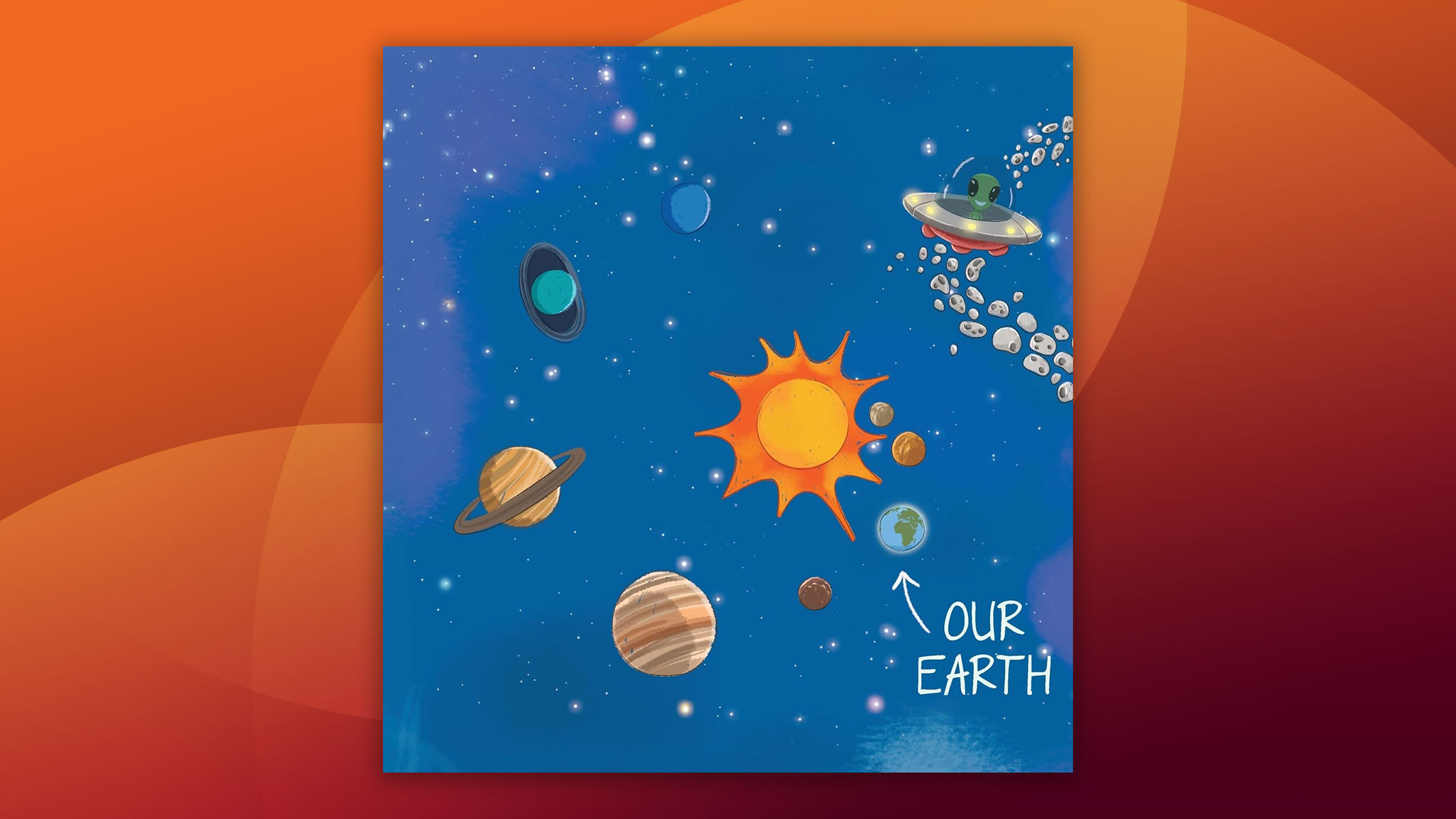 A rhyming guide to caring for our planet (Image credit: Atmosphere Press)
A rhyming guide to caring for our planet (Image credit: Atmosphere Press)
The declining state of the natural world is dire, making it an essential issue for us to be knowledgeable about. But the future of Earth doesn’t have to be a negative one. This rhyming children’s book contains vibrant and cheerful illustrations as it explains the planet we live on.
By providing ideas for ways in which we can all look after Earth in a conversational and child-friendly manner, "Our Earth" is the perfect book for budding environmentalists or indeed any member of the next generation. The delightful illustrations and memorable rhymes make the underlying message in this book a simple one, and children ages three to eight will enjoy reading it.
Whether you choose to walk and ride your bike to school, or you’re sorting your rubbish into recyclable materials, "Our Earth" teaches the reader that we can all play a part in shaping the future of the planet, no matter how small the action or how young the person.
Stomp, Soar, Dino Roar
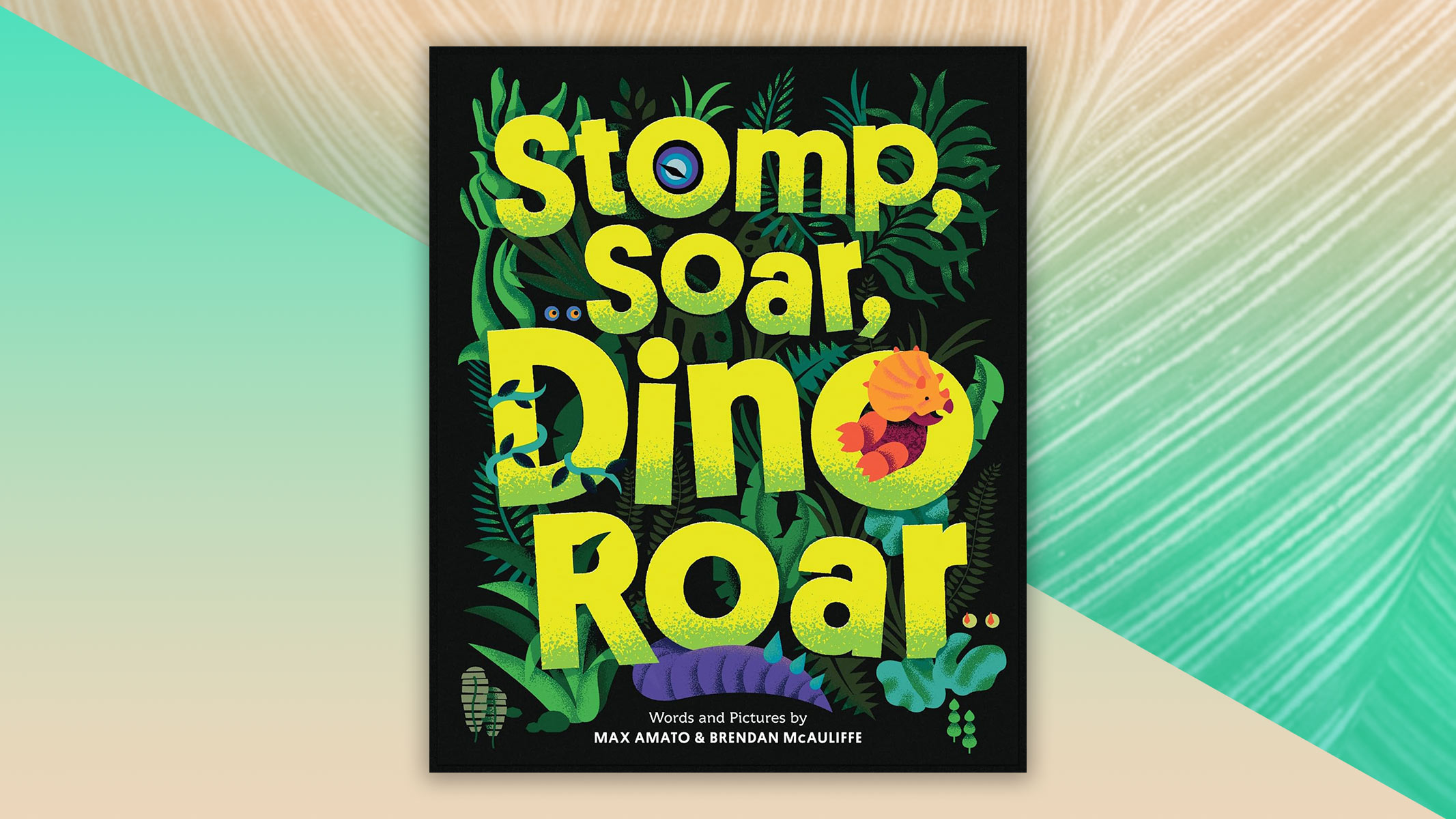 Take a dinosaur tour with Terri the Triceratops (Image credit: Sourcebooks Explore)
Take a dinosaur tour with Terri the Triceratops (Image credit: Sourcebooks Explore)
Details
Author: Max Amato and Brendan McAuliffe
Illustrator: Nathan Reed
Publisher: Sourcebooks Explore
Price: Available on Amazon for $18.99
Release date: Out now
In an immersive short story for young readers, the dinosaurs of the Cretaceous period are introduced through colorful cartoons and sounds. You will explore the world in this ancient era with newborn Triceratops Terri, as she encounters new species for the first time, too.
Each illustration enables the reader to visualise how every dinosaur would engage with its surroundings and — most importantly in "Stomp, Soar, Dino Roar"— its echoing sounds. The text’s size, shape and design helps readers to recreate the style of each sound, and phonetic spellings break down the complicated dinosaur names beneath the main text.
Hear from dunking, water-loving dinosaurs and dueling competitors as the rhymes become an entertaining and fast-paced tour. At the end of "Stomp, Soar, Dino Roar," you get more information about each dinosaur mentioned, with useful fact files and illustrations to show the size of each in comparison to a human. More thorough information about how we know what each dinosaur may have sounded like — through fossils and the analysis of living relatives — is included at the back of the book, as well as a timeline to visualise how long ago animals like Terri graced the Earth.
Read more: A brief history of dinosaurs
A Kid's Guide to the Night Sky
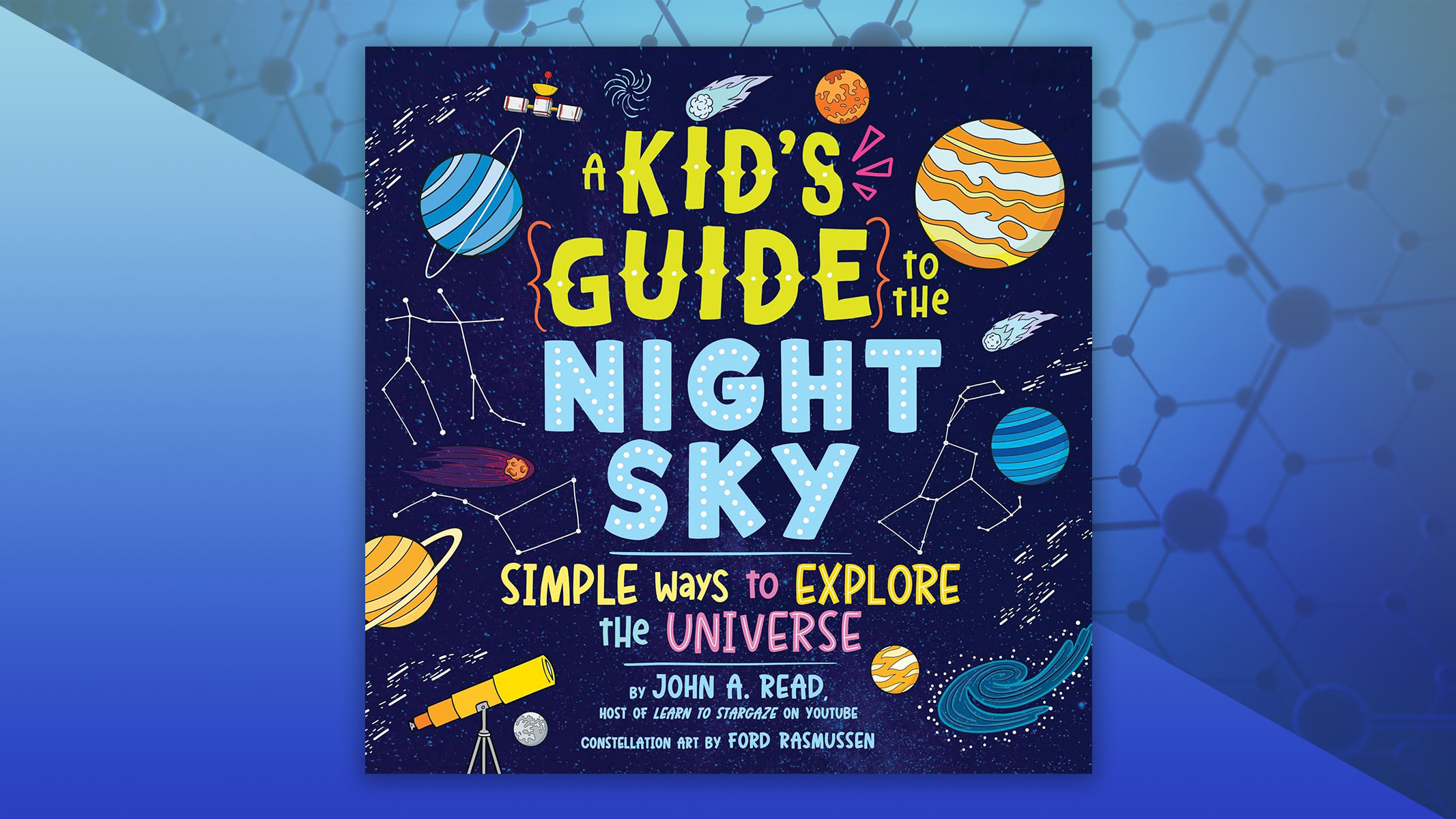 Introduce young readers to the joy of stargazing (Image credit: Sourcebooks)
Introduce young readers to the joy of stargazing (Image credit: Sourcebooks)
The night sky is filled with countless cosmic objects to explore and this book does its best to introduce a whole heap of them to the next generation of astronomers. From the little bear to the mighty dragon, there are many glinting constellations and bright stars to identify with the help of "A Kid's Guide to the Night Sky."
However, this book offers so much more for science-minded stargazers. The life cycle of stars, conjunctions and light pollution are just a few of the topics that his book introduces to its audience. It also takes a deep dive into each of the solar system's planets and some of the amazing technology that's working to find out more about them.
With so many constellations, satellites and comets to discover, this easy-to-follow guide offers helpful tips and tricks to make sense of what's in space.
Read more: Best telescopes for beginners and advanced scopes for stars, galaxies and nebulas
Doodle with Duddle: How to Draw Dinosaurs
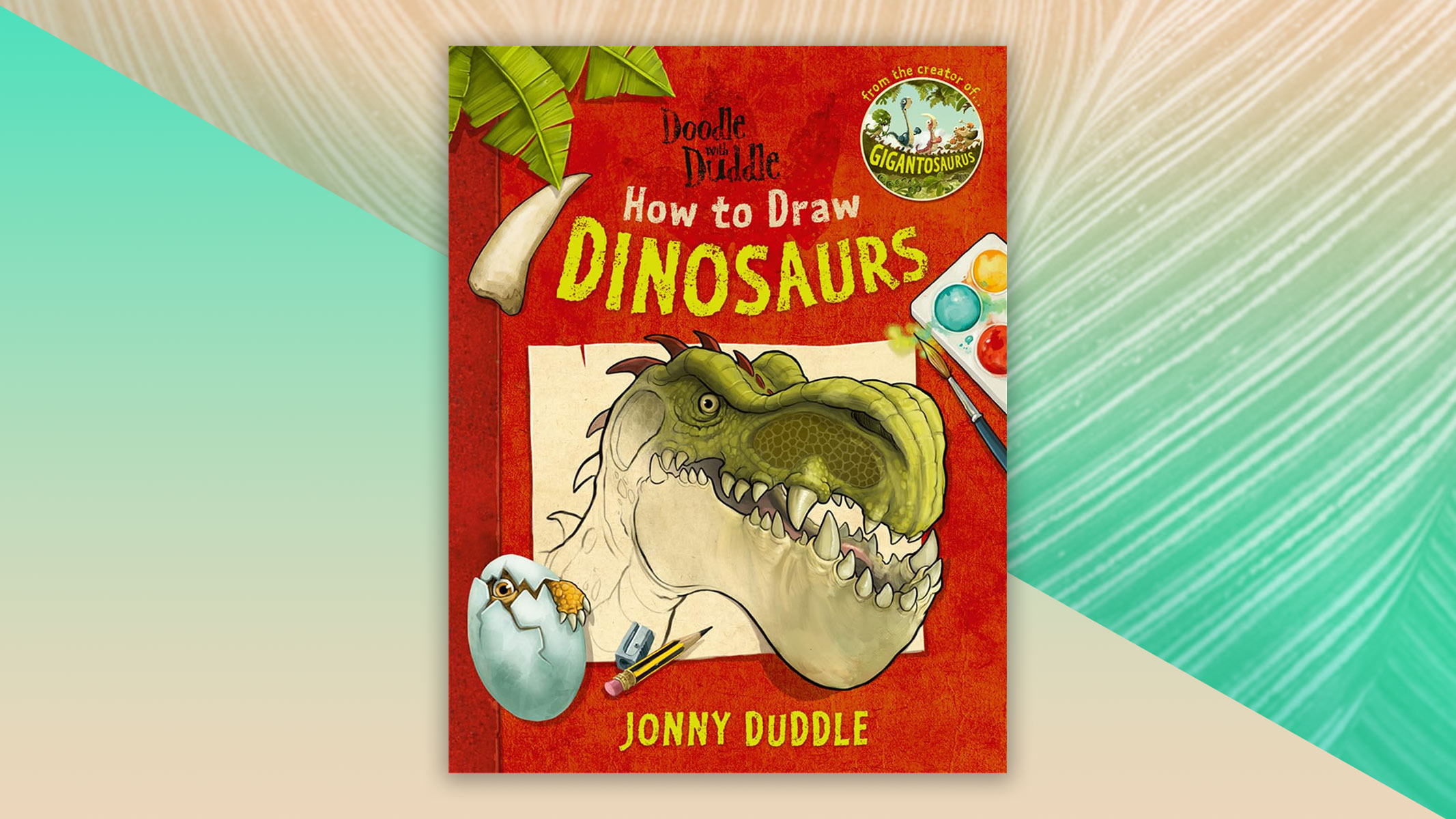 Great drawing, terrible lizards (Image credit: Bonnier)
Great drawing, terrible lizards (Image credit: Bonnier)
Would you like to be able to draw cartoon dinosaurs? Draw them really well? If you put in a lot of practice with the lessons that Jonny Duddle teaches, you could!
The author and illustrator of "How to Draw Dinosaurs" is a self-proclaimed "doodler," which is a very modest way of saying he’s a cartoon artist — and a very good one, at that. Duddle begins to take the reader through his dinosaur-drawing methods by listing the basic equipment: "just a pencil to start," although he does have his favorite tools of the trade that include a sketchbook and a ballpoint pen — not an advisable drawing implement for mistake-prone beginners.
He then introduces us to a quartet of his own, made-up dinosaur-like characters who assist in the lessons, and then readers get to start drawing some (mostly) real dinosaurs.
Duddle alternates between pages of dinosaur facts with finished dinosaur illustrations, and step-by-step lessons on how to draw them in his style. It’s often a case of building layers on top of a basic shape — such as the ellipse that forms the body of a diplodocus. The section on dinosaur skeletons, which includes a step-by-step illustration of how fossils form, is a particularly vibrant chapter that gives the budding artist a sense of the internal structure of a dinosaur and some shapes that they can start to build their own dinosaur drawings around.
Finally, for those who have advanced in their dino-doodling and have the confidence to go it alone, there’s space in the back of the book to draw their own fantasy dinosaur and a comic strip of their own doodles.
But even if the reader has no interest in trying any of Duddle’s drawing lessons, "How to Draw Dinosaurs" is a fun read for school-aged students, accompanied by captivating cartoon dinosaurs. At the very least, it’s a good drawing reference for a future school dinosaur project or art homework.
Related: If birds are dinosaurs, why aren't they cold-blooded?
The Ultimate Kids’ Guide to Dogs
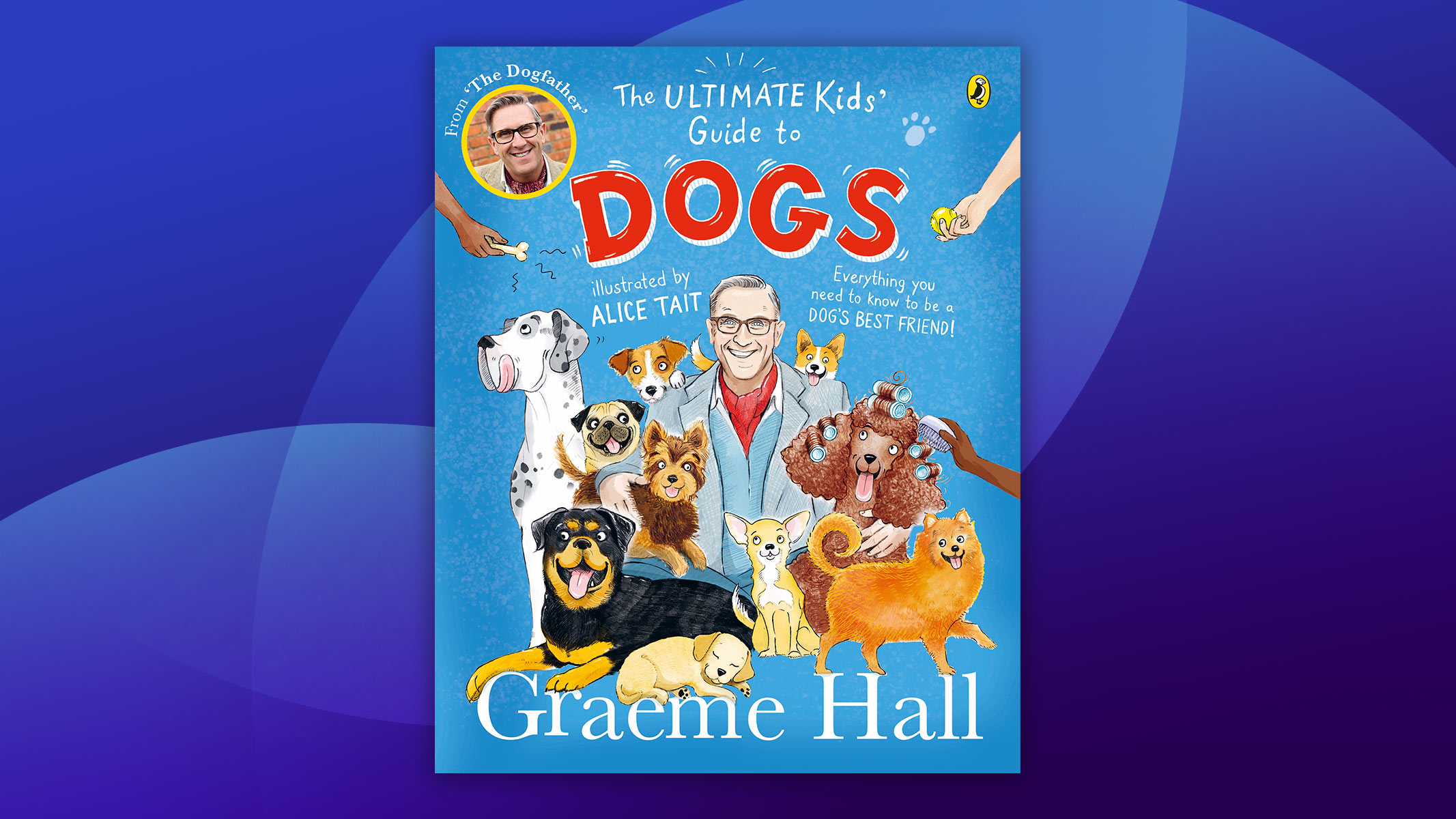 Everything you need to know to be a dog’s best friend (Image credit: Penguin)
Everything you need to know to be a dog’s best friend (Image credit: Penguin)
If you have a pet dog, or if you call yourself a "dog person," this book is the ideal introduction to their history, biology, behaviour and communication. The author’s engaging style guides young readers through all aspects of this popular pet, from their animal ancestors to the emergence of dogs 14,200 years ago.
Across each page are vibrant illustrations showing uplifting scenes of human-dog interaction. The timeline details how dogs have been helping humans for thousands of years — how humans have mistreated them, but also how work has been carried out to keep dogs protected.
Throughout "The Ultimate Kids’ Guide to Dogs" you will learn about the many jobs dogs have been selectively bred for, as well as the biology and behaviors of different breeds in the dog fact files. If you have a new puppy in your family, this is the perfect way to get to know them better. A visual timeline of a dog’s growth details what to expect from your new best friend, while the body language guide will explain what your pet is trying to tell you.
"TheUltimate Kids’ Guide to Dogs" is a brilliant blend of information and interaction. After absorbing the facts, use the dog training guide to test new tricks on your dog and — at the end of the book — test your knowledge in the ultimate dog quiz.
Related: Do any animals keep pets like humans do?
The World’s First Rollercoaster and Other Amazing Inventions
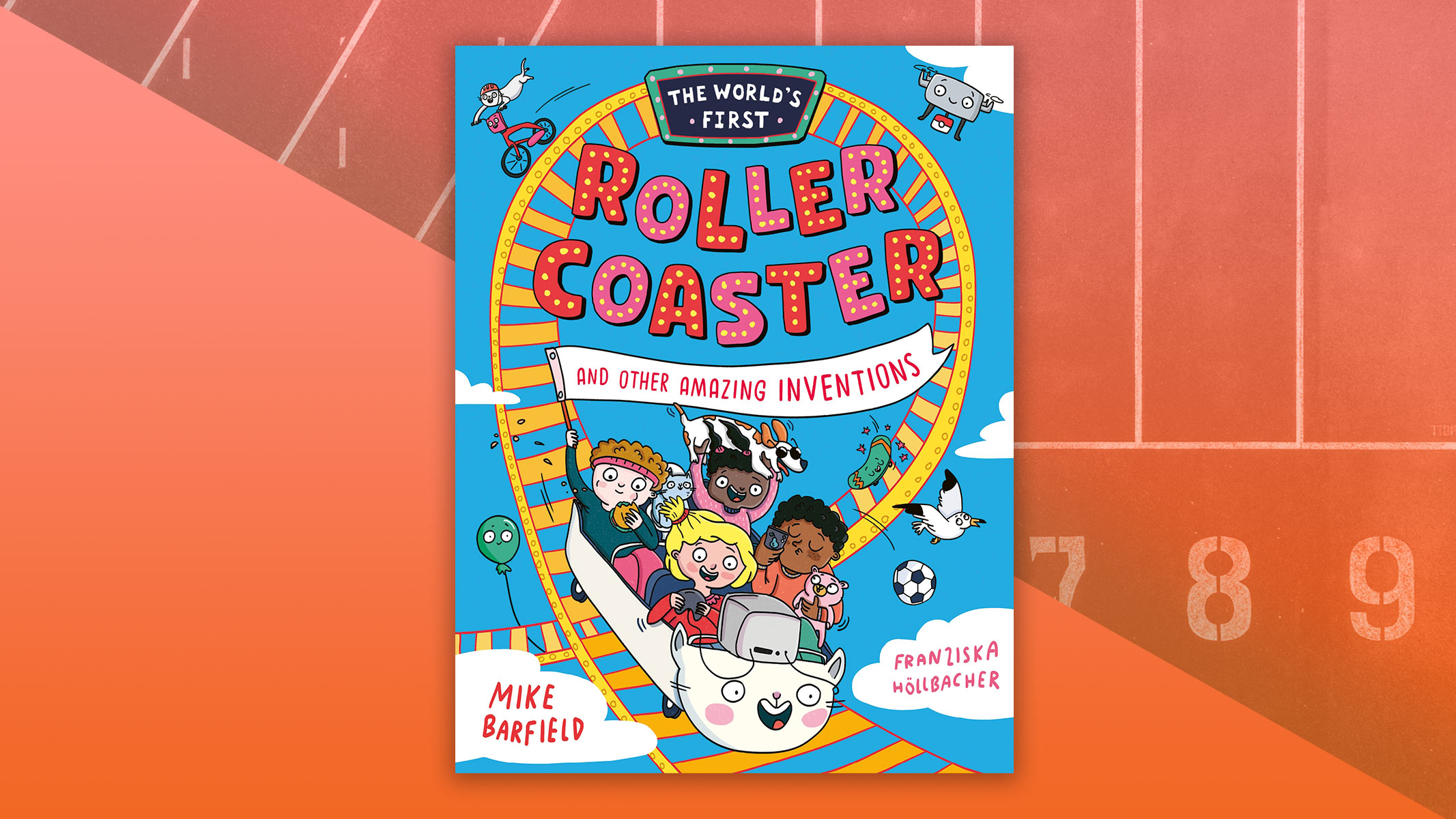 Laugh and learn with these comic-strip histories (Image credit: Templar Books)
Laugh and learn with these comic-strip histories (Image credit: Templar Books)
You can’t go far wrong with cool facts and funny comic strips, so author/illustrator dream team Mike Barfield and Franziska Höllbacher are off to a pretty good start with "The World’s First Rollercoaster and Other Amazing Inventions." It charts the greatest inventions from the last century or so — but when we say "greatest," we don’t necessarily mean the inventions that have significantly furthered our species.
Instead, fun inventions like the rollercoaster, the hamburger, skateboards and video games take precedence over the likes of electric vehicles and smartphones. This is where Mike and Franziska can have the most fun. There’s a full-page comic strip for every item on the contents page, giving a potted history of the people behind the invention and their world-famous ideas.
There’s a full-page comic strip for every item
ome of those ideas are a little more out-there — like the "invention" of the dog, which was domesticated over the course of the last 10,000 years or so, the history of which has been distilled into a single silly, yet informative, comic strip. But even the more conventional inventions have been injected with good humor and an interesting angle.
For instance, instead of telling us how Carl Friedrich Benz built the world’s first petrol-drive automobile in 1885, Barfield veers slightly off that course to talk about Benz’s wife, Bertha, who achieved her own world-firsts with Carl’s invention and without whom we wouldn’t even know the name “Benz” in the world of motoring.
If you want to learn more about that, you’ll just have to read the book — we promise you it’s well worth it. "The World’s First Rollercoaster and Other Amazing Inventions"is as amusing as it will be interesting to anyone of any age, and by the end you’ll be sure to have learned a thing or two about some of your favorite inventions.
Related: 32 weird technologies that never took off
Your Sustainable World
 A kid's guide to everyday choices that help the planet (Image credit: Capstone Press)
A kid's guide to everyday choices that help the planet (Image credit: Capstone Press)
It's safe to say that children have never been more aware of the impact that climate change is having on the world — and with that awareness come countless questions about how families can play their part in protecting the planet. In this simple guide to sustainable living, children will learn about different climate challenges, as well as some of the small ways in which we can help reduce our negative impact on the environment.
Along with well-known concepts in sustainability such as "the five R's" (reduce, reuse, recycle, repurpose and refuse), there are new ways of being greener to explore, such as "green fashion" and "smart eating." Packed with helpful tips and advice, "Your Sustainable World" is sure to inspire children to make more environmentally friendly choices.
Related: 15 unexpected effects of climate change
Respect the Insect
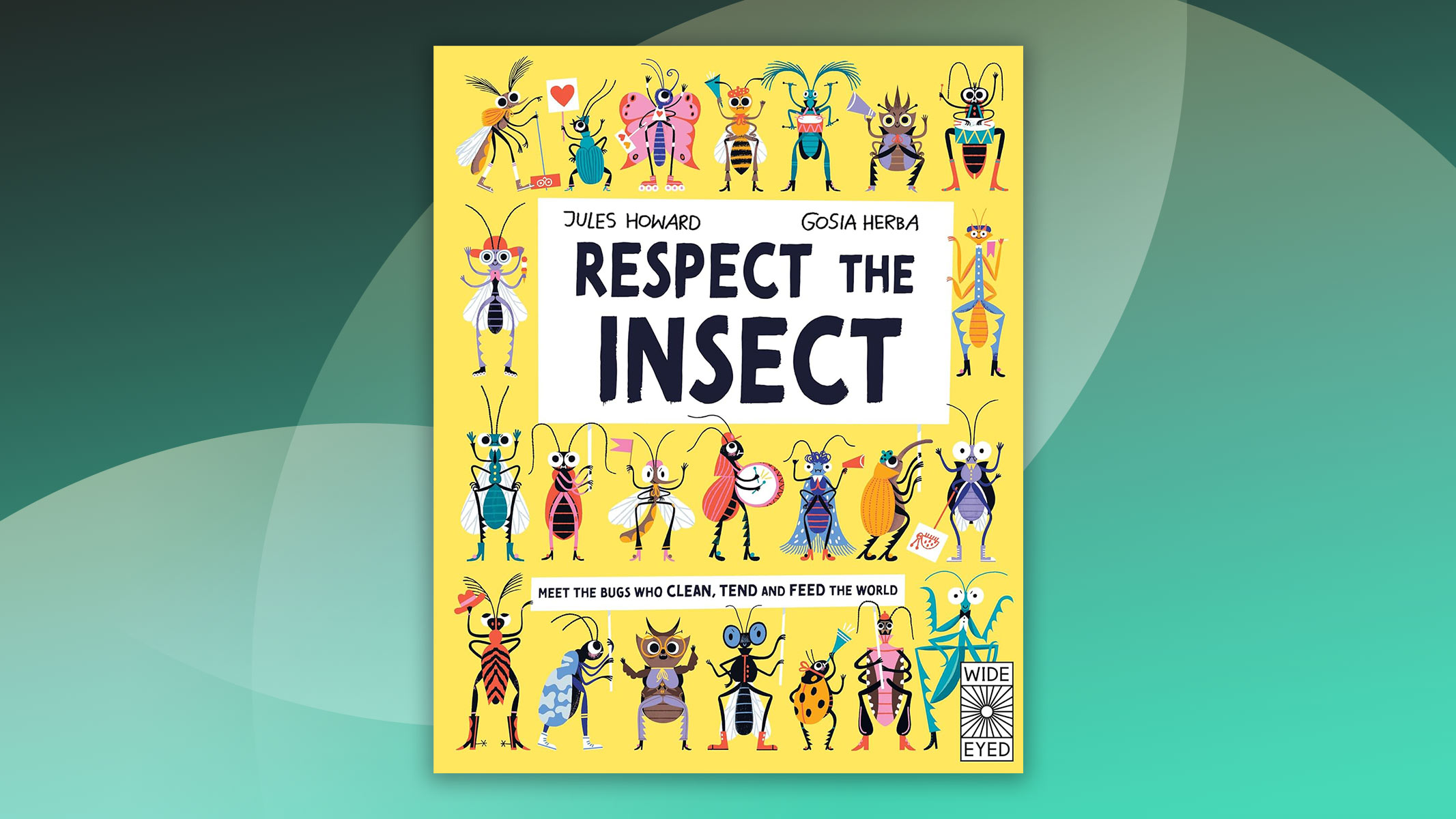 Meet the bugs who clean, tend and feed the world (Image credit: Wide Eyed)
Meet the bugs who clean, tend and feed the world (Image credit: Wide Eyed)
In this amusing, factual and engaging book, young readers are introduced to the insect world in a visual way, to help understand each creature’s importance.
Each insect is personified by a cartoon character who will explain their daily role in the environment. Let the critters welcome you into their home for a grand tour, detailing how they built their homes and some of the ways their actions are misunderstood.
From plastic problem-solving wax moth caterpillars to earth-moving termites and honey-making bees, each page will show you a new animal in action. One section reveals the prevalence of insects around the globe, from desert dwellers to the insects that need to live in conditions so cold that if you touched them, they would die from exposure to your body heat.
Wherever you live in the world, this book ensures that the next time you come across one of these species, you will have more respect for the insect.
Related: How do insects know which flowers have pollen?
Best science books for older children and young adults
Boats: Steamers, Icebreakers, and Ghost Ships
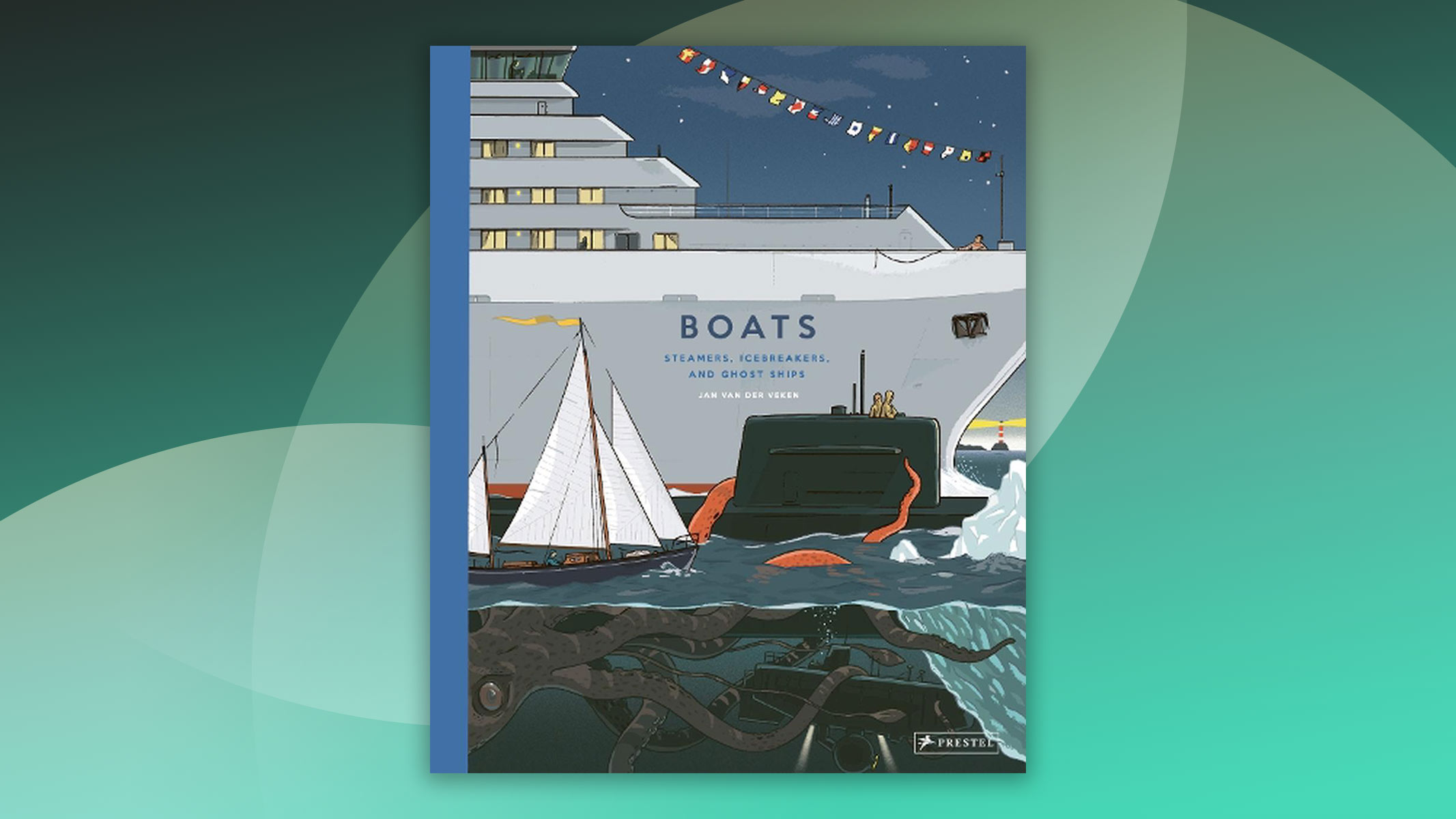 (Image credit: Prestel Junior)
(Image credit: Prestel Junior)
This visually entertaining book sails you straight into the maritime world to explore the technology invented for traversing the seas. As you navigate the pages, you will learn how to communicate in Morse code, use a sextant and understand the science behind a submarine.
The scientific diagrams dispersed through "Boats" are subtle enough that they blend into creative and charismatic ocean scenes while teaching the basic physics behind floating boats, surging ships, radar reception and many more marine mechanics. "Boats" does exactly what its title claims, but what is surprising is the great array of water-borne machines that have been produced throughout the history of human exploration, and the diverse onboard devices that have evolved alongside them.
From intricate engineering to long-told maritime superstitions, you are sure to find something in "Boats" that will intrigue you.
The Tiny Farm Planner
Have you ever wanted to grow your own produce at home, but don’t know where to start? This book is the perfect way to keep your home farm on track, plan its layout and log its progress. Filled with essential information to consider and useful tips for producing the right plants and quantities for your needs, "The Tiny Farm Planner" will help to keep your garden growing healthily.
Chapters include trackers for chores, seed-starting schedules, disease trackers, seasonal reviews and expense logs. In between each season’s log, the author has written friendly reminders about the best practice for gardening, as well as extensive information about how the garden is changing throughout the year — and what you may not have considered as you approach a new season. Its advice draws on personal experiences from author Jill Ragan and there are relevant, inspirational quotes from famous individuals throughout.
This wealth of information and tracking prompts makes "The Tiny Farm Planner" a great gardening companion — and the task of producing a tiny farm that much less daunting.
Related: Who were the first farmers?
Up, Up High
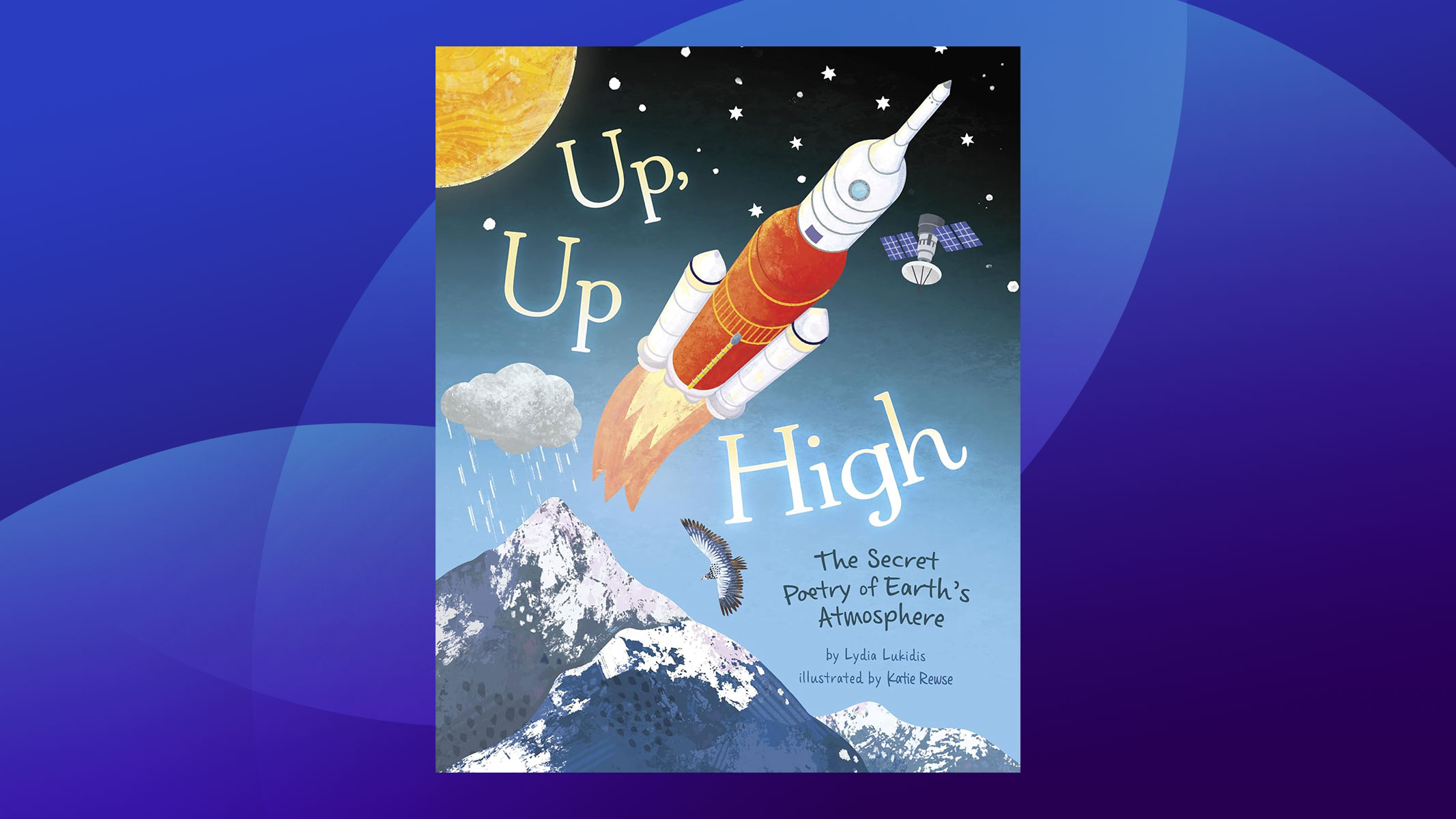 The secret poetry of Earth’s atmosphere (Image credit: Capstone Editions)
The secret poetry of Earth’s atmosphere (Image credit: Capstone Editions)
It can be difficult to understand any environment beyond Earth’s. With this book, the reader is introduced to the solar system and the many worlds "Up, Up High". It’s written in a storybook style that takes you soaring through the skies and out of Earth’s atmosphere in a rocket.
From the astronauts who regularly venture into space, to electrical phenomena like nothing seen on our planet, any hard science and fascinating facts are explained in pop-up text boxes. This admirably combines smooth-flowing, lyrical language without missing out any crucial information that might answer children’s questions.
Katie Rewse’s illustrations show accurate representations of planets, phenomena and space technology, while introducing friendly faced characters, simplified space imagery and stimulating works of art for young readers to enjoy.
Overall, this short story covers a vast range of topics without feeling crammed. By the end, with the assistance of clear diagrams and an immersive storyline, the reader can begin to visualize the space beyond our sky.
Survival Gardening
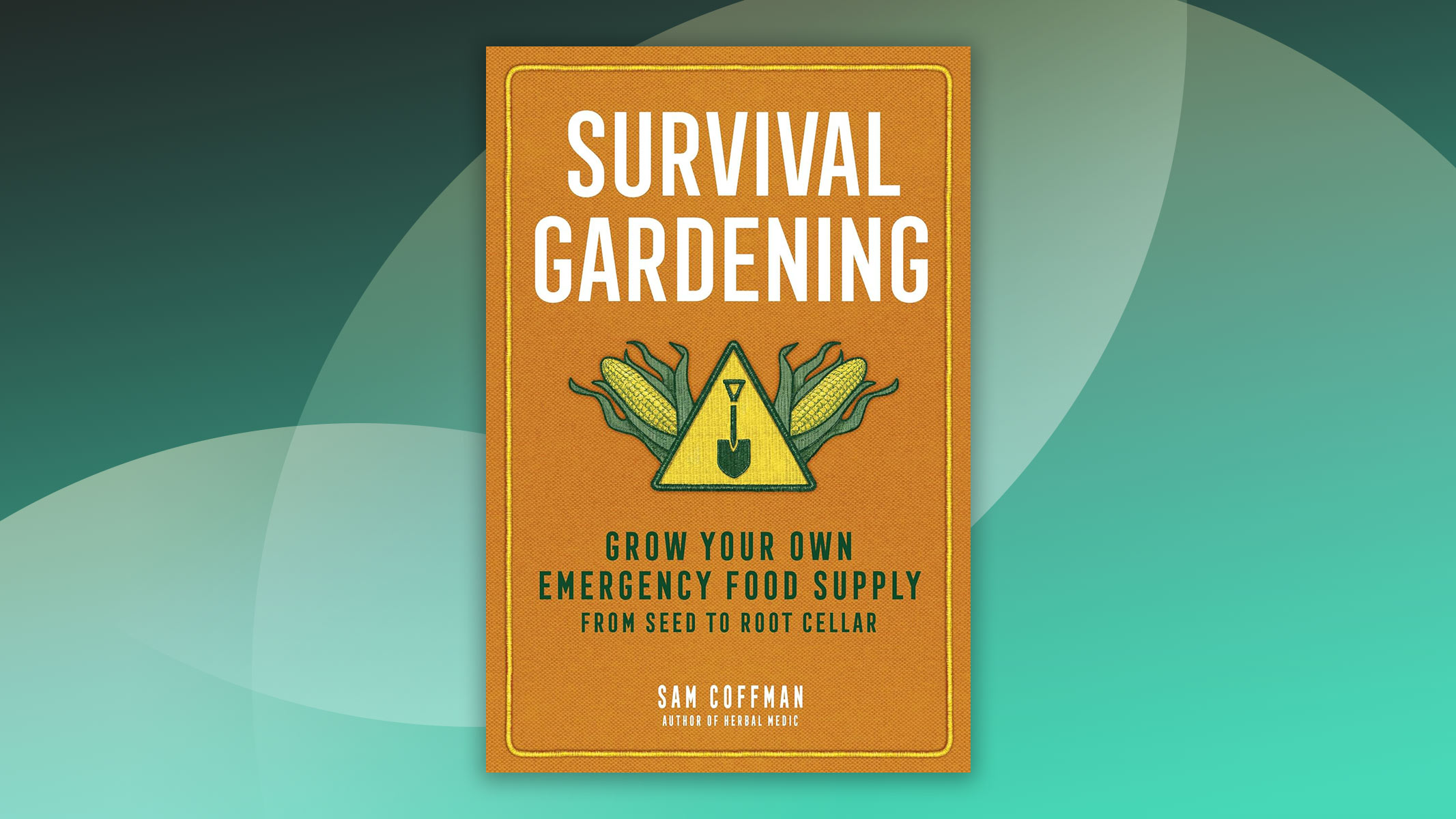 Grow your own emergency food supply (Image credit: *)
Grow your own emergency food supply (Image credit: *)
During a time when people are more aware than ever of the importance of food sustainability, this gardening guide is a must-read for anyone looking to grow their food.
From fast five-week grows to establishing gardens for the long haul, this complete guide to at-home agriculture is overflowing with helpful information and instructions. There are also several DIY projects that tackle some of the equipment you'll need to create your survival garden, such as water filtration systems, compost, and "humanure" making.
Along with abundant advice on the practicalities of growing your food, there is also a great deal of nutritional insight to discover, such as fat-rich seeds and protein-loaded chickpeas. One of the most important aspects of this survival guide is that it teaches how to preserve and store the fruits of your labor, including how to dehydrate and how to build a root cellar in your garden. So whether you're a nature novice or a green-thumbed gardener, there's heaps of knowledge to harvest from "Survival Gardening".
Space: From Sputnik to the International Space Station
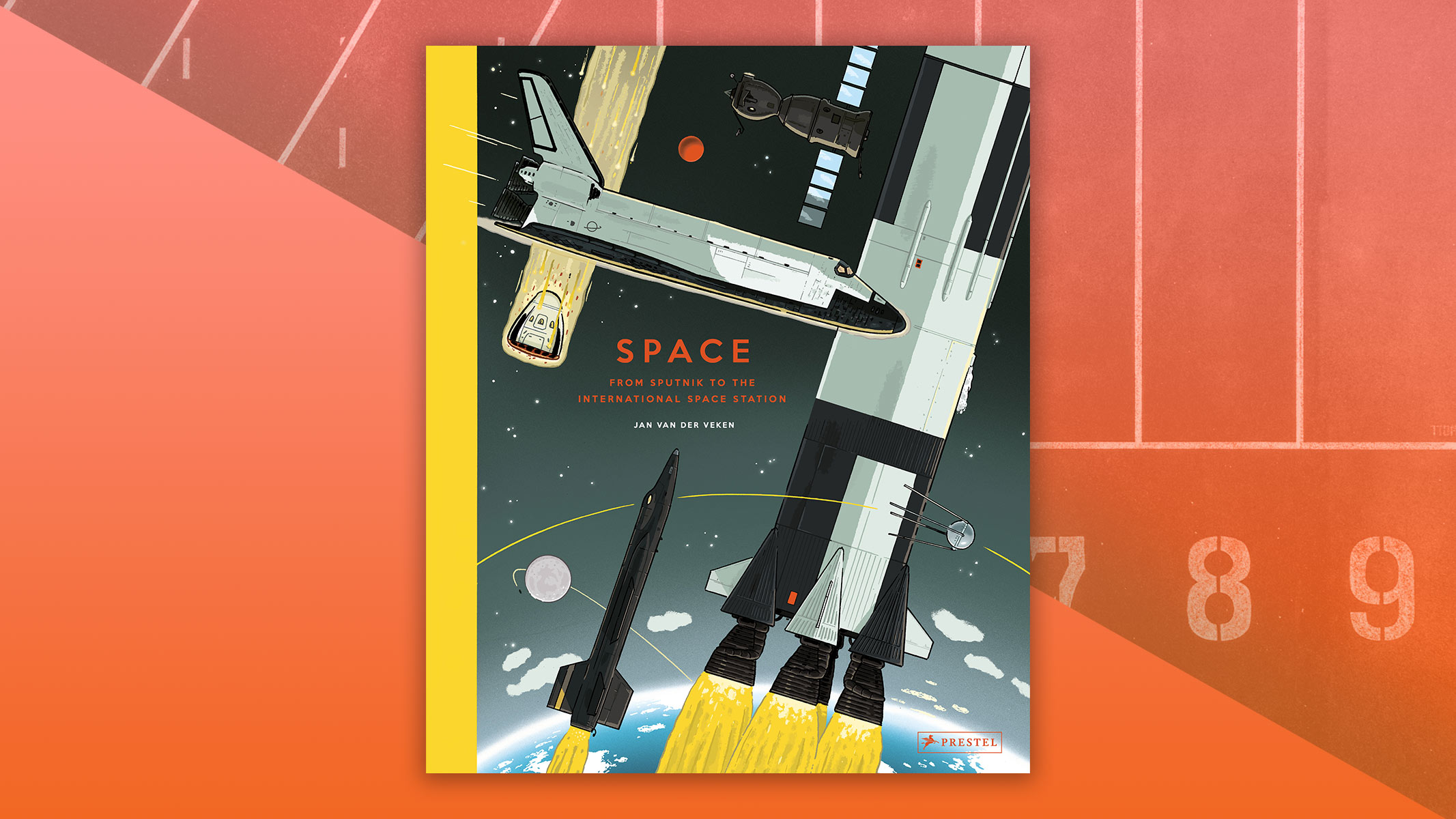 Visual eye-candy that will appeal to space fans of all ages (Image credit: Prestel Junior)
Visual eye-candy that will appeal to space fans of all ages (Image credit: Prestel Junior)
The story of humankind’s ventures into space, from unmanned spacecraft and our first tentative test flights in the 1950s to today’s International Space Station missions, is replete with incredible tales of technological feats and individual heroism.
Take the story of John Stapp, for example, which sets the standard for "Space," the latest transport book by writer and illustrator Jan van der Veken. Stapp was a test pilot who built a rocket sled to assess the effects of sudden, massive acceleration and deceleration on the human body. He was strapped into his sled by assistants before he hit the ignition button and went from zero to 620 miles per hour in just five seconds, then back to zero in an even snappier 1.4 seconds. Dozens of these human test runs left him with broken ribs, broken wrists and bruised eye sockets, but Stapp survived and the data from these experiments were invaluable to the safety systems incorporated into future space missions.
From one double-page spread to the next, "Space" takes us through some of the biggest milestones in space travel. Following on from Stapp’s exploits, we head into the first human spaceflight, the Moon landings, Skylab (the first US space station) and the Space Shuttle program. Between these historical waypoints, van der Veken explains the technology that got us there — the rockets, space suits and ground vehicles without which future astronauts would have been left to stare dreamily into the sky — and more incredible stories of human endeavor, such as the time Sergei Krikalev was stranded on the Russian space station Mir for six months, after the fall of the Soviet Union.
Like the other books in his transport series, "Space"is also gorgeously illustrated by van der Veken, and the retro, Tintin-style drawings of astronauts and ground crew in action around iconic spacecraft suit this book to a tee: Hergé would be proud. "Space" is recommended for ages 10 and upwards, but we think its eye-candy alone would appeal to just about anyone.
Amazing Jellyfish
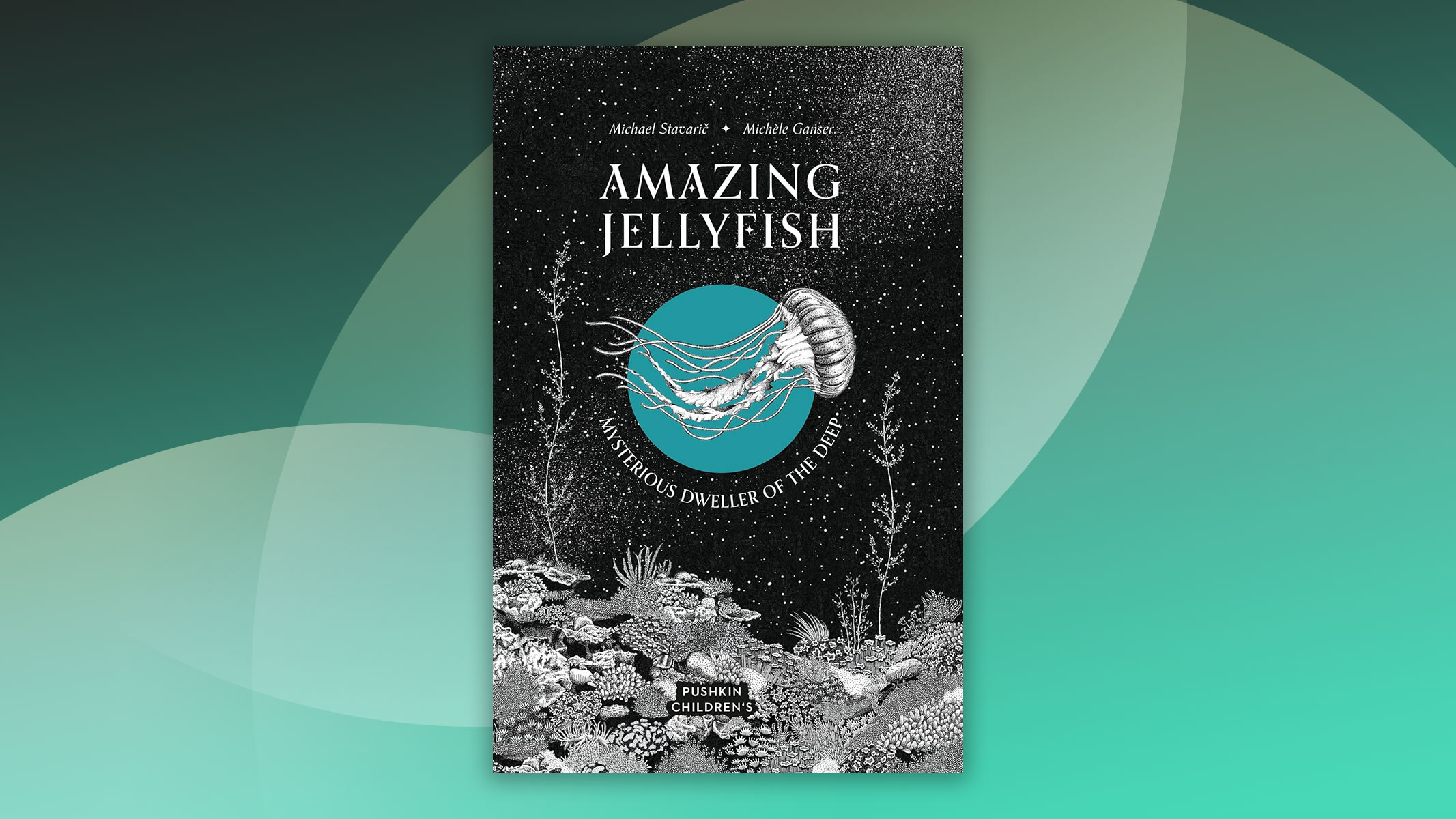 Mysterious dweller of the deep (Image credit: Pushkin Children's Books)
Mysterious dweller of the deep (Image credit: Pushkin Children's Books)
Details
Author: Michael Stavaric
Illustrator: Michèle Ganser
Publisher: Pushkin Children's Books
Price: Available on Amazon for $27.00
Release date: Out now
Take the plunge into the marine world with this engaging and interactive guide to the mysterious lives and environment of jellyfish. "Amazing Jellyfish" is expertly written for 8- to 12-year-olds but contains plenty of impressive facts and statistics that would amaze much older readers.
The first-person style from the author helps to maintain the attention of young readers, by including personal anecdotes and avoiding packed pages of overwhelming text. There is a perfect balance of information and visual elements for confident readers, as each section is split into sophisticated sketches and a mixture of writing styles. The book also contains fact files of some of the most poisonous animals, a list of jellyfish-themed jokes, an interactive maze through marine litter and detailed life cycle illustrations.
Even if you have an idea of what life as a jellyfish might look like before reading this book, "Amazing Jellyfish" may introduce you to a much more fascinating and highly diverse world of the jellies.
Related: 13 of the most venomous sea creatures lurking in the water
Astrophysics for Supervillains
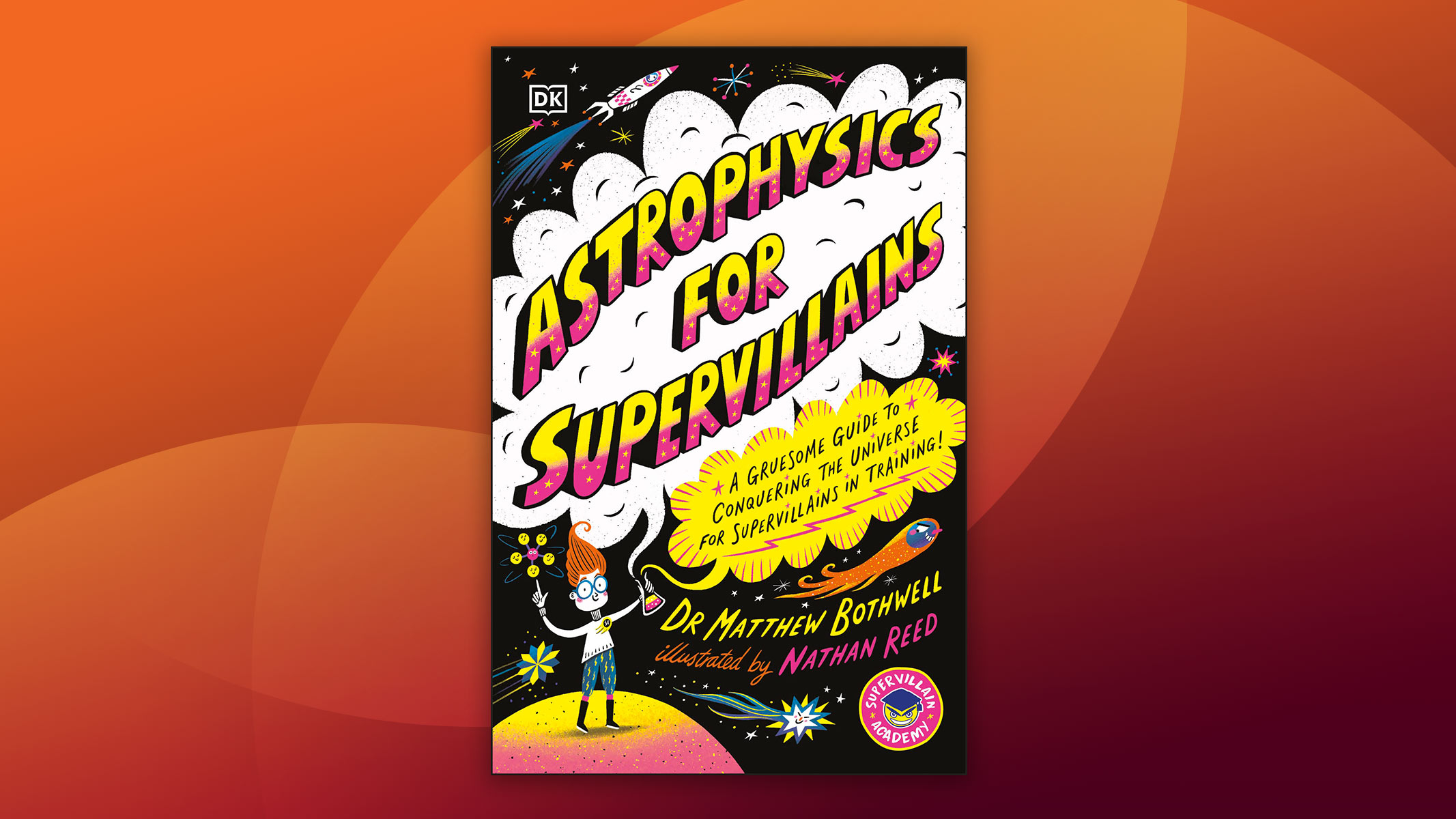 Got a budding supervillain in the family? (Image credit: DK)
Got a budding supervillain in the family? (Image credit: DK)
Taking plenty of cues from the bestselling "Horrible Histories" series, "Astrophysics for Supervillains" is a children’s book of space facts that moves space education beyond what a typical 9-year-old might learn in their classroom. And as long as there’s other stuff on the school curriculum, like English or Geography, there’s no chance of the teacher finding time to derail the learnings of a supervillain-in-training.
Author and astronomer Dr. Matt Bothwell steps up to the role of evil genius and takes us through six meaty chapters of space facts, from the relatively ordinary confines of our own solar system to the end of a star’s life, the heat death of the universe and, our favorite, "How to Destroy the Earth" — a list of the various cosmic fates to which Earth may finally succumb, however unlikely those might be.
Weaves around tough answers that might require an actual PhD to unpick
Every chapter can effectively be split into a series of questions that might typically be asked by a school student of a certain age, such as "How long could you survive on Pluto?", "What is inside a black hole?" and "If the universe is growing, what is it expanding into?". These questions are comprehensively answered by Dr. Bothwell in his best supervillain professor voice, reveling in the extreme dangers posed by the space beyond our little bubble of atmosphere, and the apocalyptic scenarios that we might encounter if we could travel millions of light years from Earth and live a few billion years or more.
Dr. Bothwell is the public astronomer at the University of Cambridge’s Institute of Astronomy, so engaging a school-age audience is all in a day’s work — and "Astrophysics for Supervillains" is no exception. It cleverlyweaves around tough answers that might require an actual PhD to unpick, coupling them with plenty of cartoon illustrations and the kind of choice typography that makes a good comic strip.
All told, this is a really fun insight into the cosmos that could inspire future generations of astronomers.
Cloudspotting for Beginners
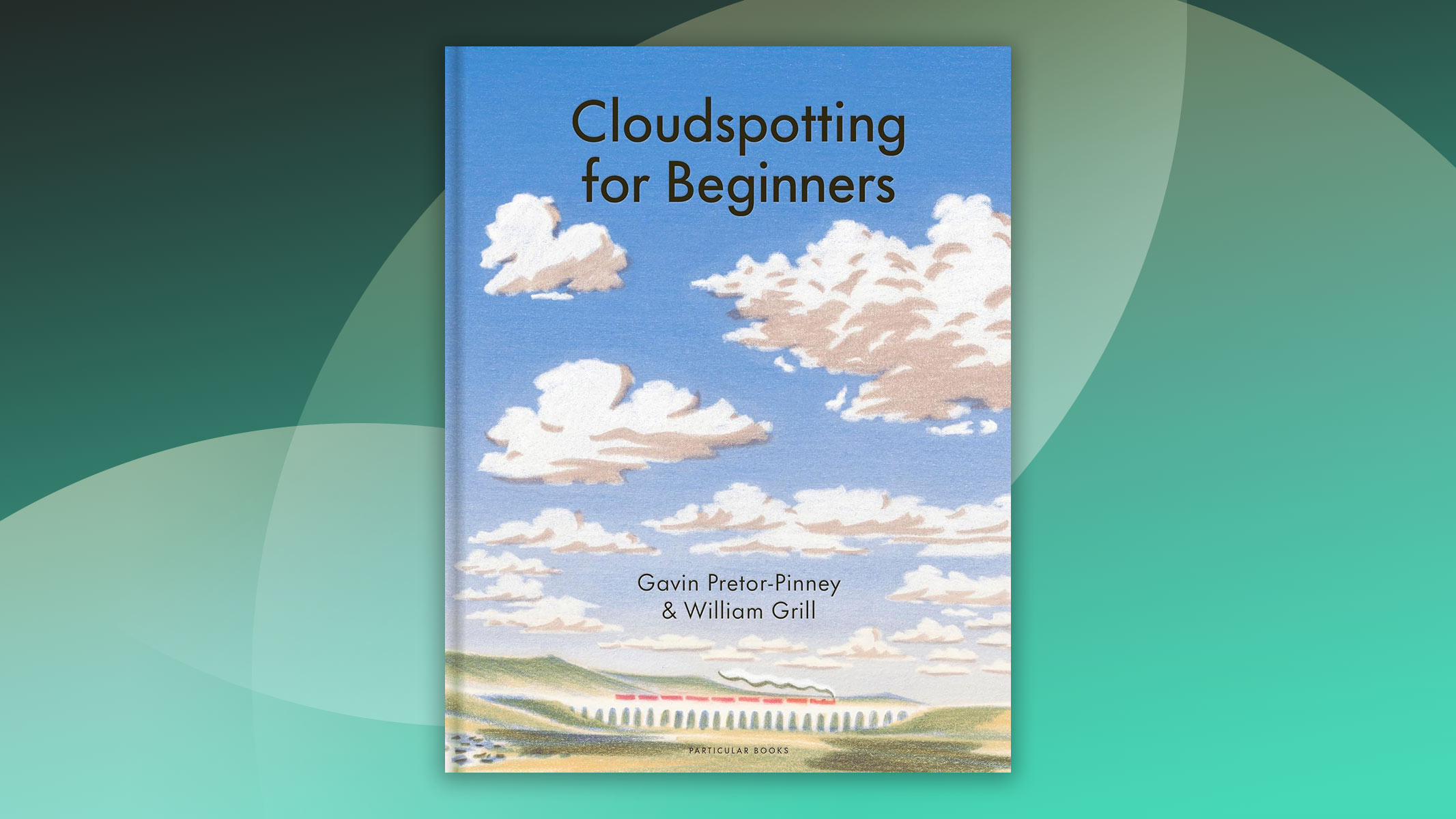 Read all about the science, structure and secrets of the sky (Image credit: Particular Books)
Read all about the science, structure and secrets of the sky (Image credit: Particular Books)
If the ever-changing sky and shape-shifting patterns of clouds have ever piqued your interest, this is the book for you. Those fluffy objects floating in the atmosphere are immensely complex, and each form of cloud has a specific classification, produces intriguing phenomena and exists only at favourable altitudes. "Cloudspotting for Beginners" introduces you to each type of cloud, often giving them a poetic personality to remember them by.
Just like the act of skywatching itself, reading this book has a calming effect, as each cloud type and phenomenon is presented with elegant sketches that beautifully capture the intricacies and moods of different skies. You will learn about the 10 main cloud types, positioned on the page at the altitudes where you can spot them. Artistic graphs detail the science of cloud formation, the anatomy of rainbows, halos formed by clouds’ crystals and the appearance of clouds on other planets.
How were clouds named, which weather pattern is each cloud type linked to and what clouds capture a sunset? The answers to all these questions and more are revealed in "Cloudspotting for Beginners."
A Brief History of Stuff
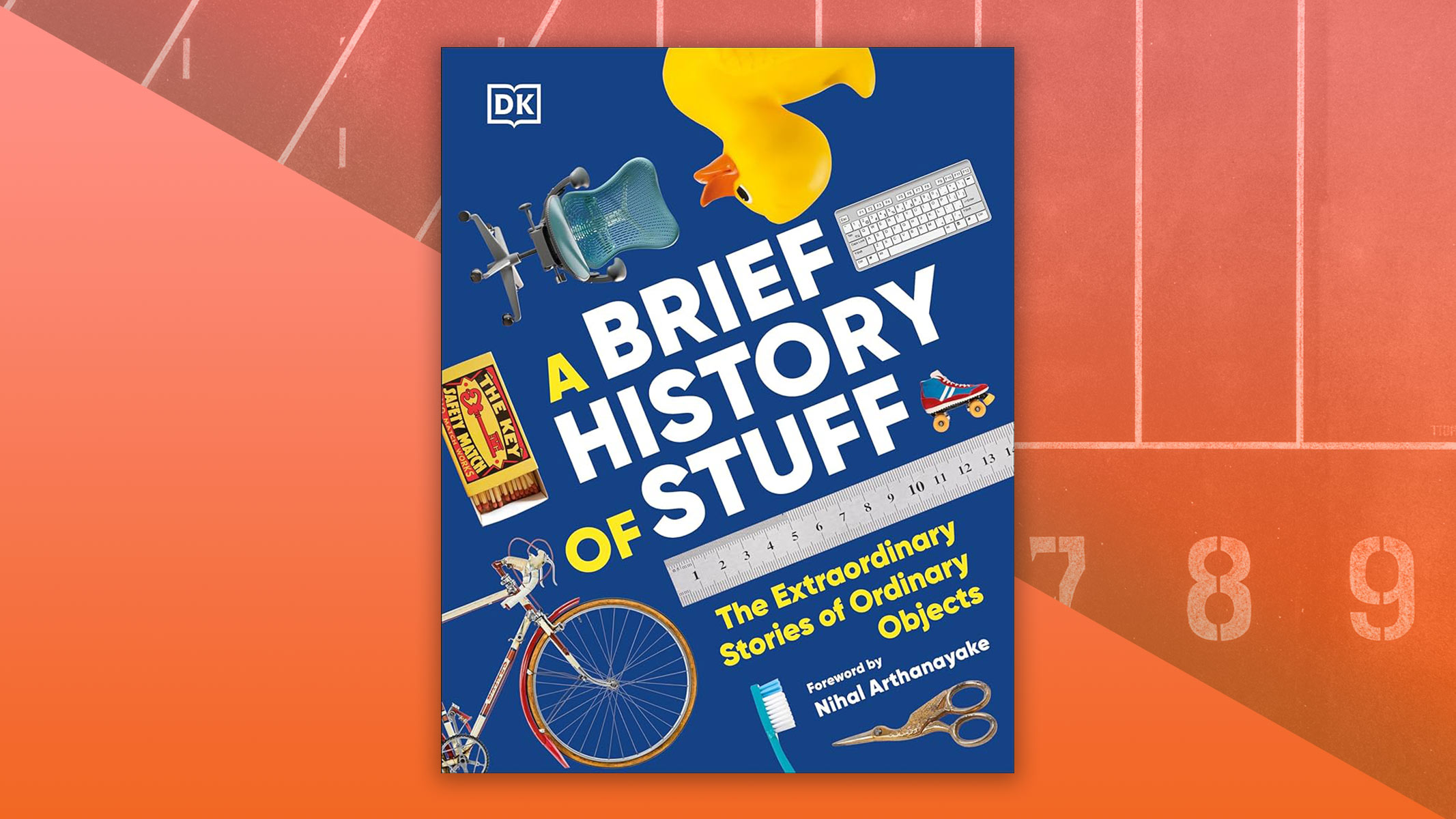 The extraordinary stories of ordinary objects (Image credit: DK)
The extraordinary stories of ordinary objects (Image credit: DK)
DK has selected a truly eclectic list of "stuff" for inclusion in this curiously put-together book. From baby bottles to ballpoint pens, there isn't much of a logical path or timeline — which, oddly, is part of what makes it a brilliant reference for kids of all ages.
Casting your eye over the contents page and seeing a list of everyday items such as a thimble or a fridge magnet, you're left realising there's a gap in your knowledge about how all these things came to be. Luckily, "A Brief History of Stuff" has all the information you need about their origins and impact on society.
Packed with bitesize facts, before you know it you'll be reciting the history of "stuff" to your friends and family.
Read more: 20 inventions that changed the world
The Pocket Calculator Story
 A history of technology that will make a great reference book (Image credit: Amberley Publishing)
A history of technology that will make a great reference book (Image credit: Amberley Publishing)
These days, calculators have mostly been relegated to a smartphone or desktop app. However, this piece of electronic math wizardry has a history that is long and varied, as will become abundantly clear to readers of "The Pocket Calculator Story."
From the key invention of the transistor in the 1960s, you'll follow the evolutionary journey of the humble pocket calculator and watch it transform into a feature-packed mini-computer, capable of making short work of complex equations. You'll also discover the many weird and wonderful calculators that broke the mold, such as the calculator-pen hybrid, the credit card calculator and the iconic calculator watch that dominated the 1980s.
Offering a dose of tech nostalgia, this makes an excellent reference book for any personal electronics enthusiast.
Related: Best laptops for students 2024: Get the perfect laptop for college
What If Fungi Win?
Arturo Casadevall is a professor of molecular microbiology and immunology at the Johns Hopkins School of Medicine, and the author of "What if Fungi Win?" — an insightful look at how fungi facilitated evolution and benefited the global biome, but how they could also be the downfall of civilization.
Drawing on his own research and experience, Casadevall describes the fascinating biology behind fungi, including their amazing powers of radiation resistance and healing abilities. There's an important cautionary tale in "What If Fungi Win?", too: In a post-Covid world, Casadevall shares the importance of tackling infectious fungi and warns about the rise of drug-resistant species.
By the time you've finished this fascinating and eye-opening book, you'll surely have gained a new appreciation for fungi — along with a cautious side-eye.
50 Women in Technology
 Meet the trailblazers that change the world of STEM (Image credit: Supernova Books)
Meet the trailblazers that change the world of STEM (Image credit: Supernova Books)
Details
Author: Georgina Ferry, Inês Nobre de Almeida and Bridget Greenwood
Publisher: Supernova Books
Price: Available on Amazon for $29.99
Release date: Out now
In a celebration of the female pioneers that have helped advance technology throughout history, "50 Women in Technology" is sure to inspire the next generation of brilliant scientists. Along with some of the more recognisable names such as Katherine Johnson or Marie Curie, there are many unsung heroes of science to discover, such as Vera Rubin, whose work led to the discovery of dark matter.
In part, this reference book acts as a reminder of the great women whose work paved the way for modern minds. For example, Stephanie Willerth, a professor at the University of Victoria in Canada, oversees research to engineer treatments for central nervous system disorders, while data scientist Rumman Chowdhury is tackling solutions for ethical artificial intelligence. These are just some of the minds that you'll meet through a series of interview-based biographies that reveal the motivations of women who are making strides in technology.
Related: 25 amazing women in science and math
Radar and the Raft
The story of radar, its inventors and contributing scientists are combined in this true story about the technology’s emergence and lifesaving uses. Written for readers around the ages of 10 to 13, "Radar and the Raft"is for those with an interest in history and technology.
Unlike many technology-based non-fiction books, this story largely focuses on the people and families behind the technology, as well as life during World War II. The book includes a combination of character storylines and multiple scientific discoveries, intriguing the reader as to how they will connect together. Toward the end of the book, these stories and inventions meet in a dramatic scene that demonstrates the lifesaving potential of science.
Grips readers through both personal stories and the evolution of technology
"Radar and the Raft" grips readers through both personal stories and the evolution of technology. By connecting the story of the Bell family’s near-death experience at sea during World War II with the story of radar’s discovery, the author has produced an engaging and informative storyline. This is a great read that explores the direct consequences of scientific discoveries.
Read more: How radar works: The technology made famous by war
Get the world’s most fascinating discoveries delivered straight to your inbox.
Ben Biggs is a keen and experienced science and technology writer, published book author, and editor of the award-winning magazine, How It Works. He has also spent many years writing and editing for technology and video games outlets, later becoming the editor of All About Space and then, Real Crime magazine.
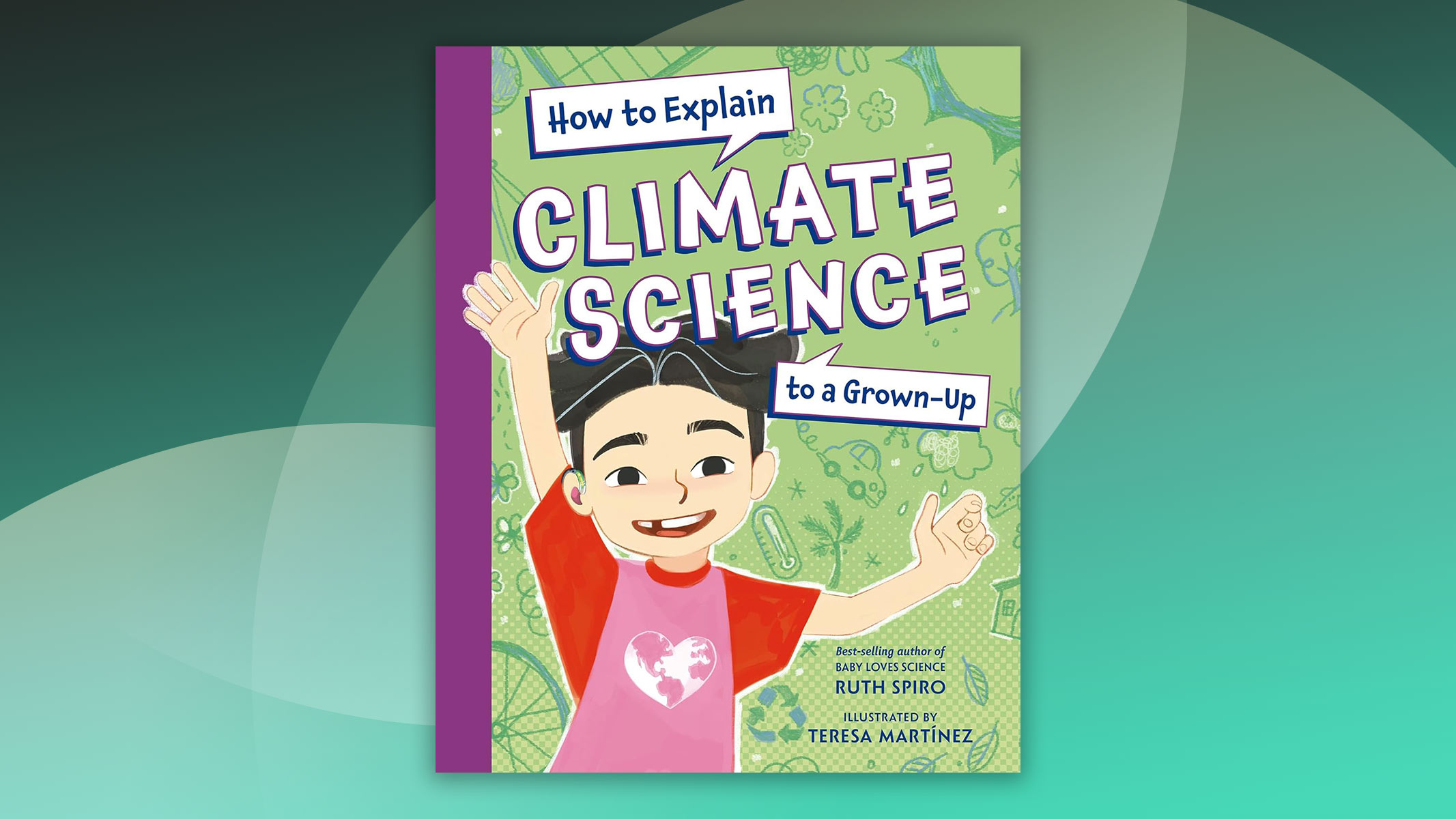 Everything a child needs to know when talking about the environment (Image credit: Charlesbridge Publishing)
Everything a child needs to know when talking about the environment (Image credit: Charlesbridge Publishing)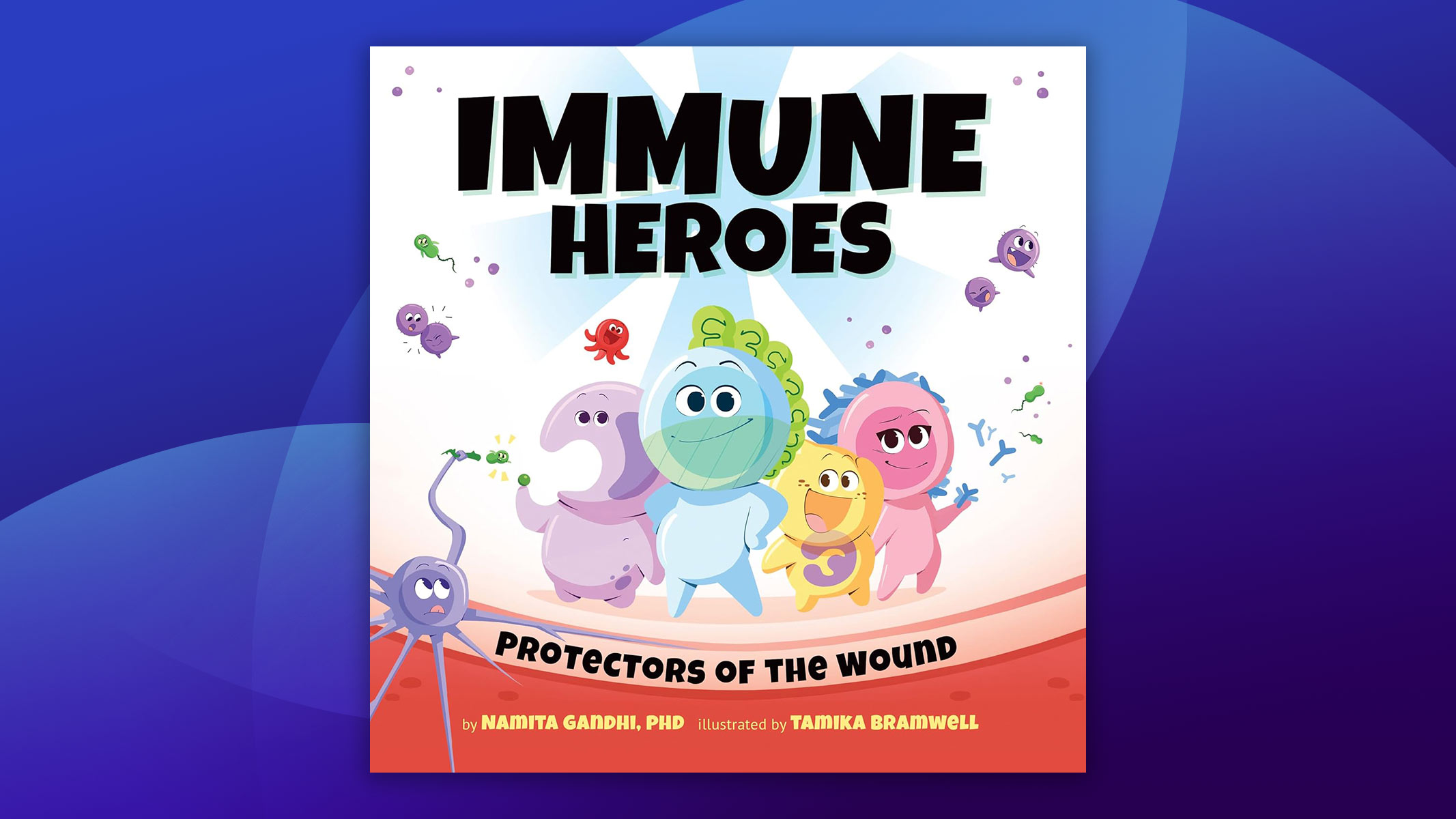 Meet the protectors of the wound and discover how these cellular soldiers defend the human body (Image credit: BooksGoSocial)
Meet the protectors of the wound and discover how these cellular soldiers defend the human body (Image credit: BooksGoSocial)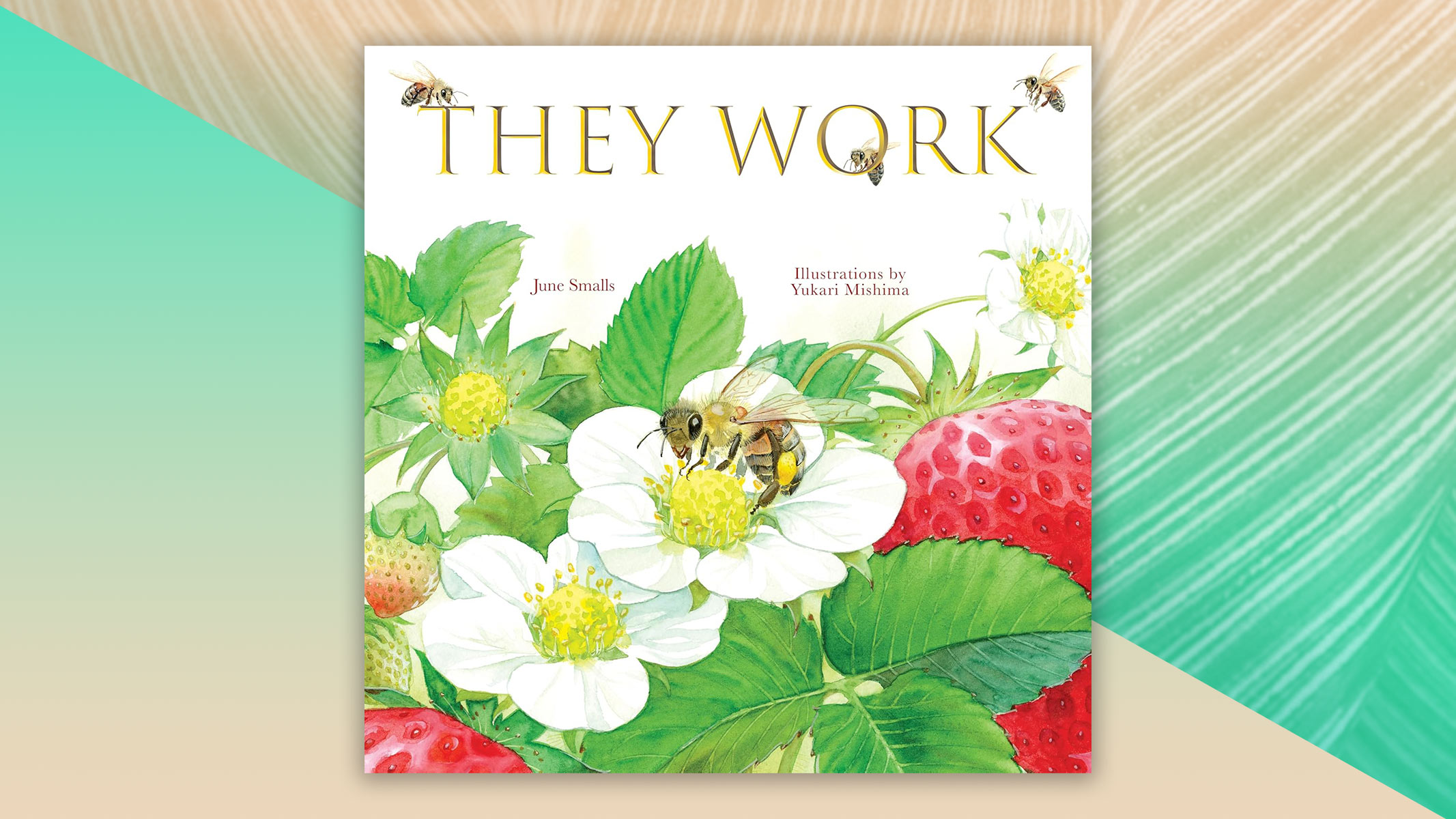 (Image credit: Familius LLC)
(Image credit: Familius LLC)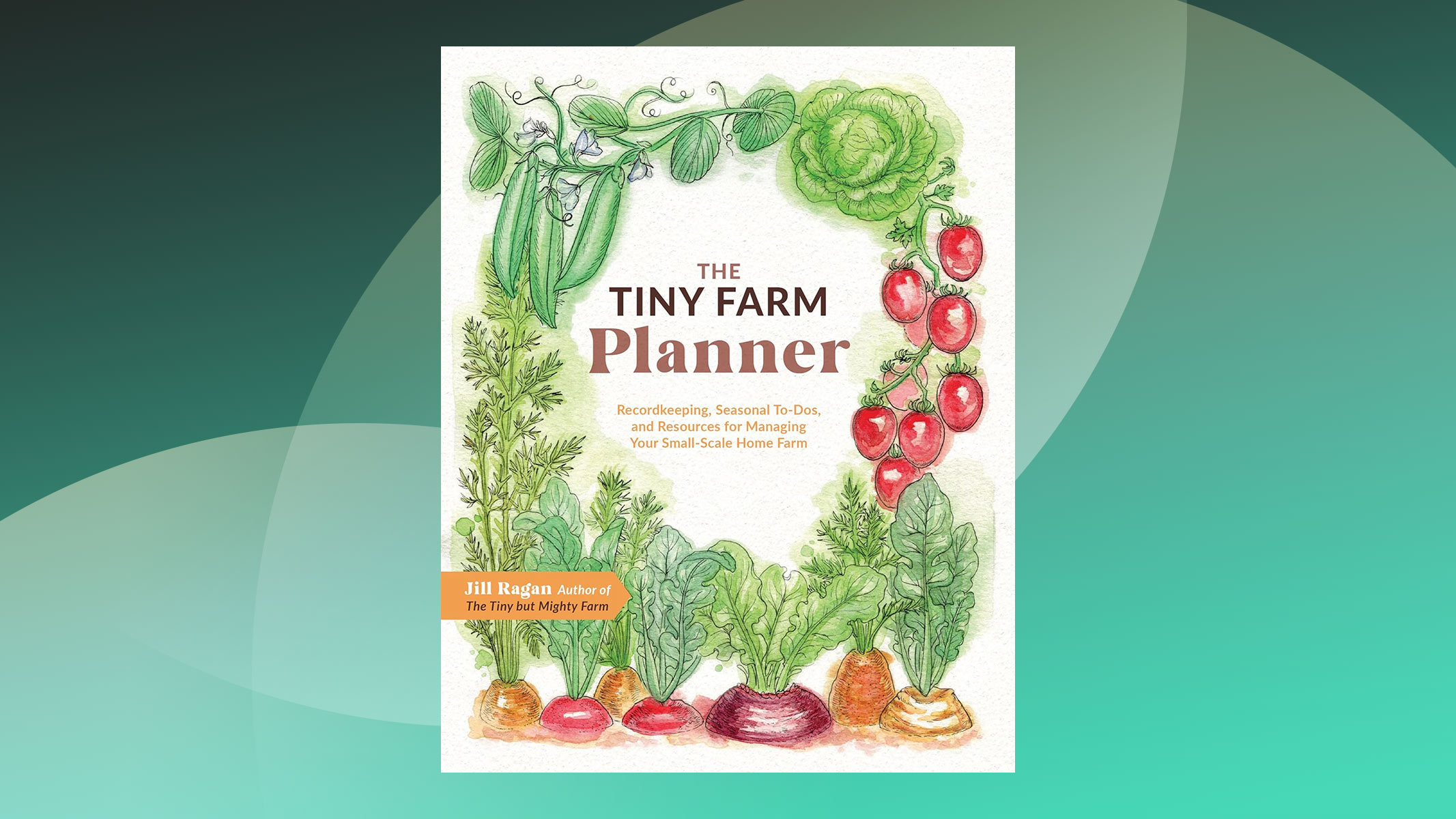 Record keeping, seasonal to-dos, and resources for managing your small-scale home farm. (Image credit: Cool Springs Press)
Record keeping, seasonal to-dos, and resources for managing your small-scale home farm. (Image credit: Cool Springs Press)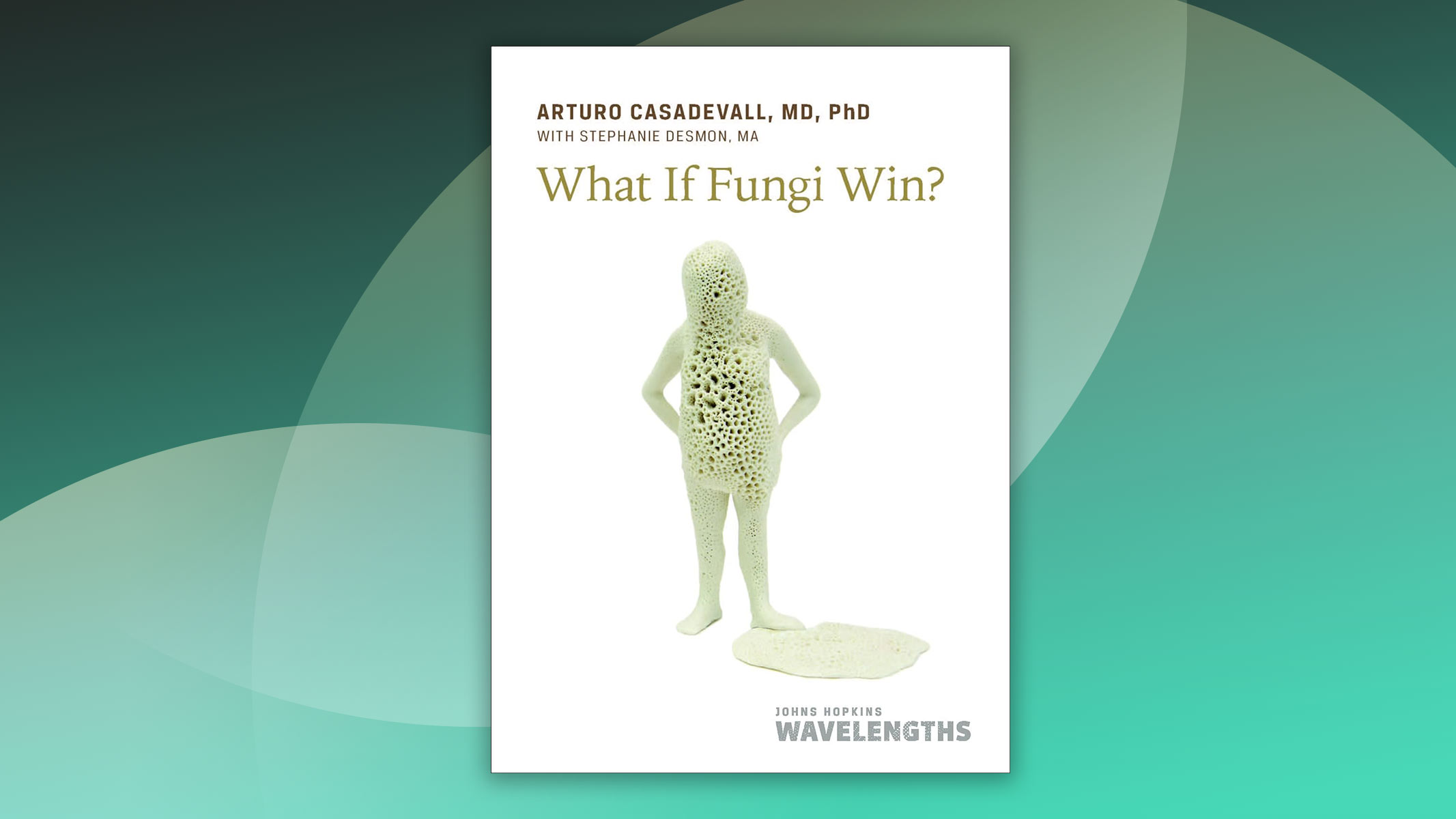 TV show "The Last of Us"could be a dark portent of the future (Image credit: Johns Hopkins University Press)
TV show "The Last of Us"could be a dark portent of the future (Image credit: Johns Hopkins University Press)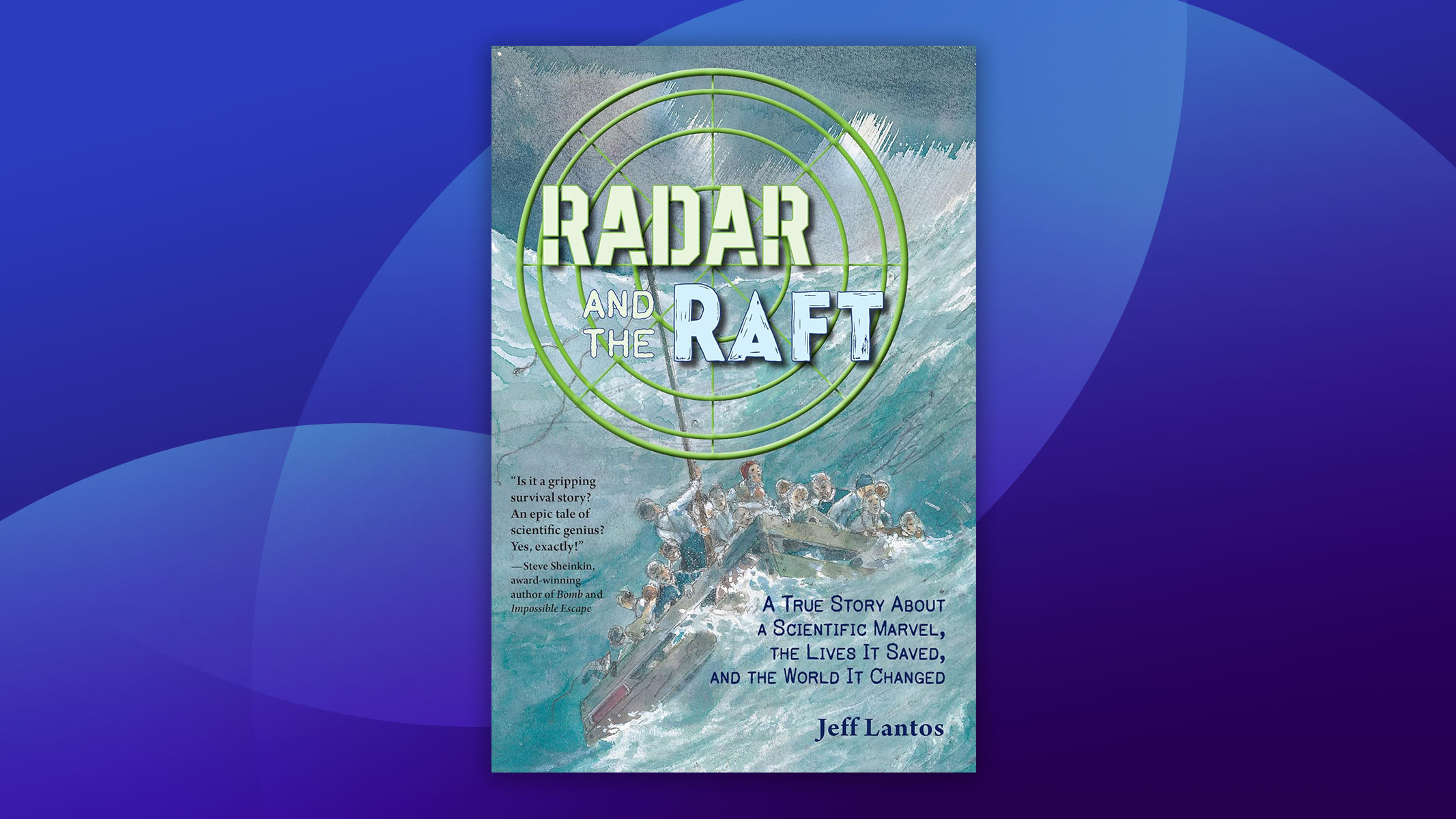 A true story about a scientific marvel, the lives it saved and the world it changed (Image credit: Charlesbridge)
A true story about a scientific marvel, the lives it saved and the world it changed (Image credit: Charlesbridge)